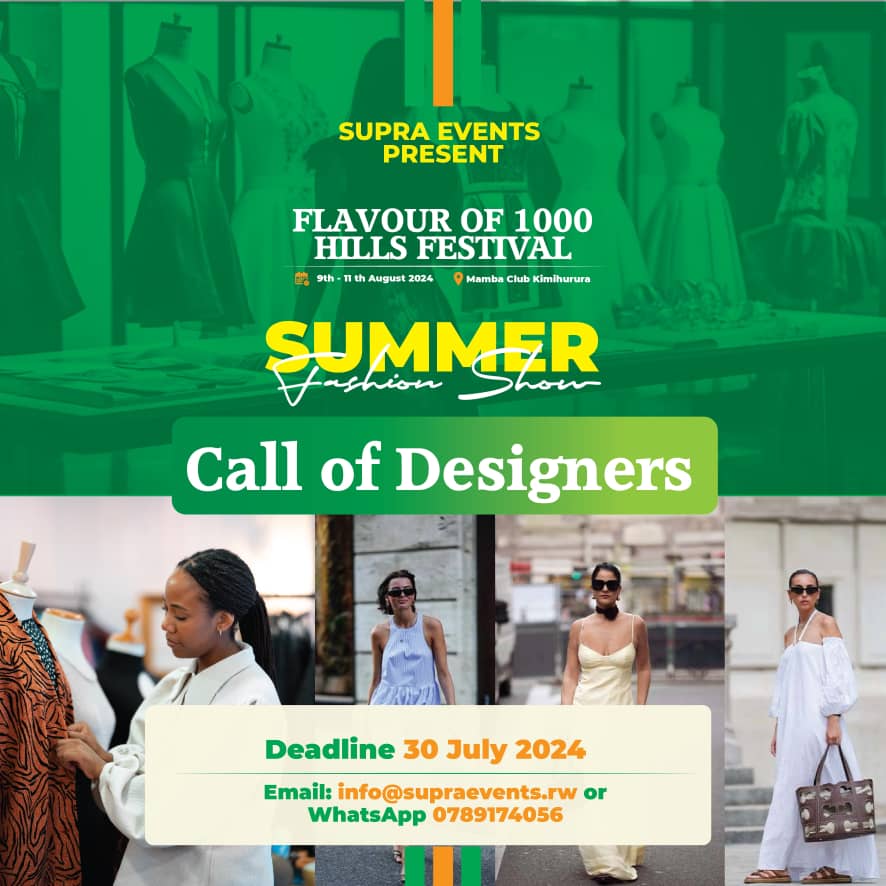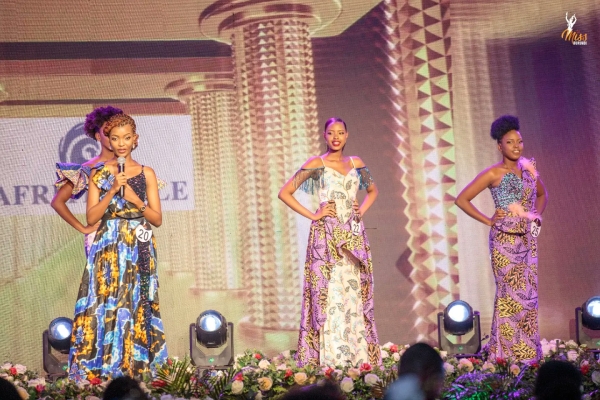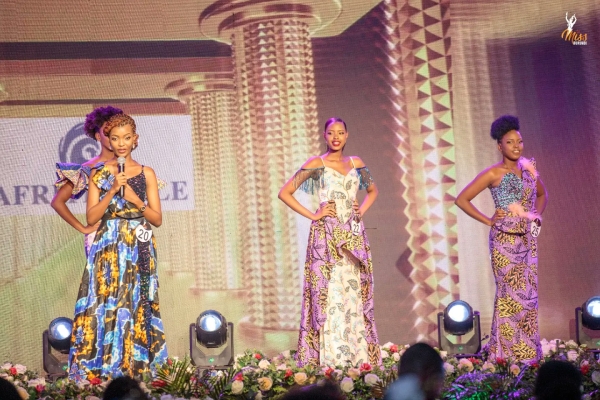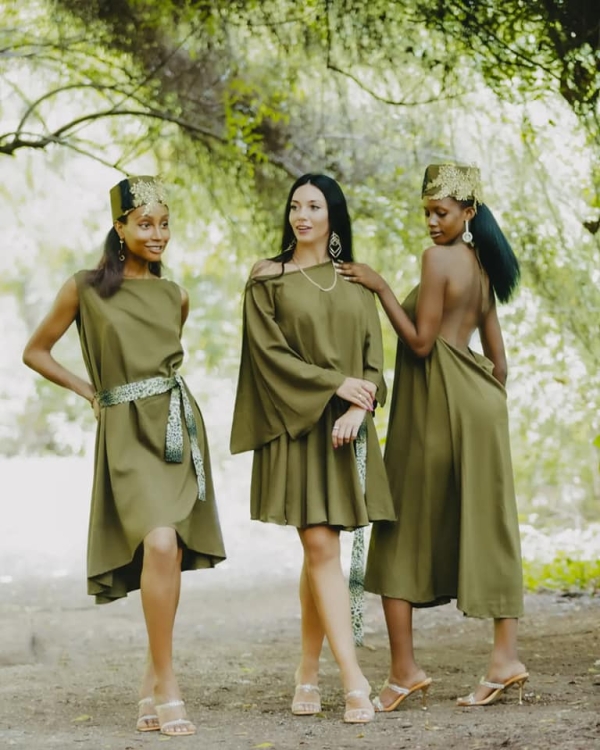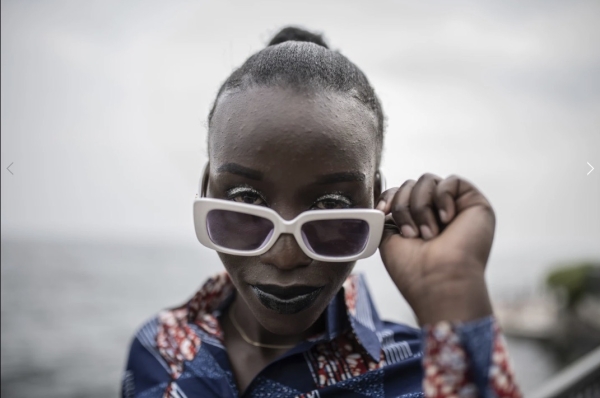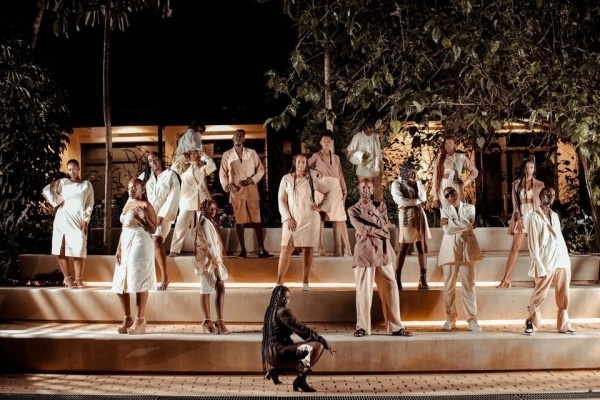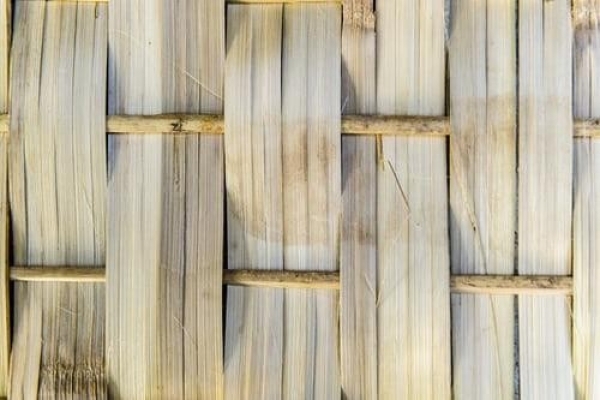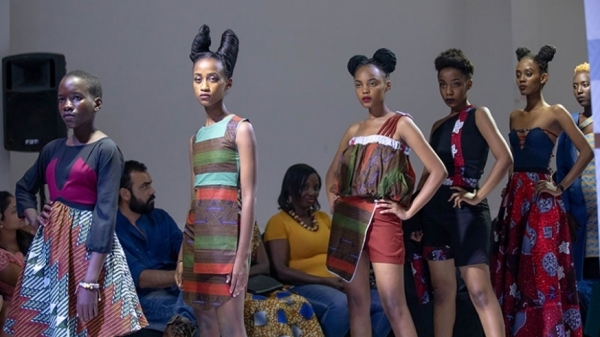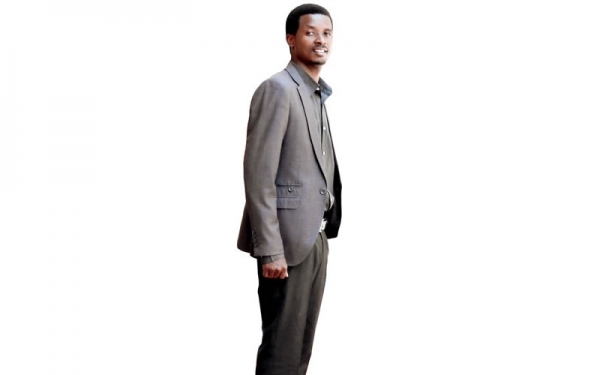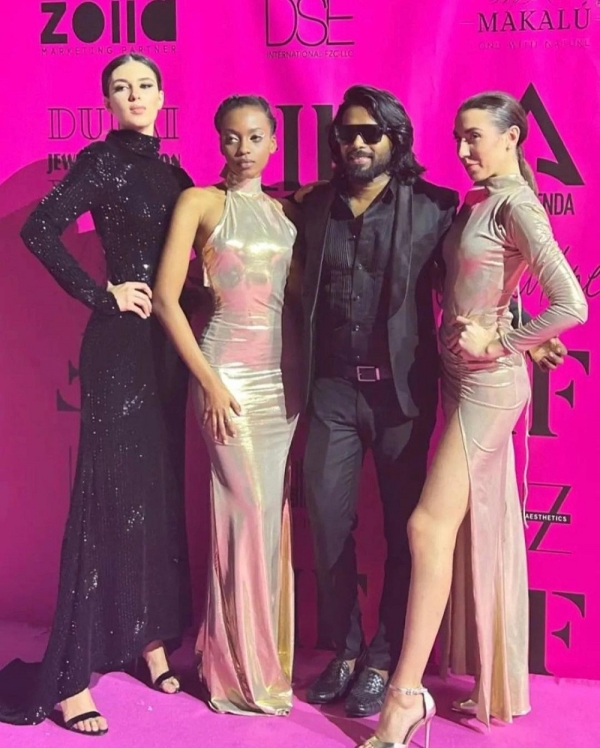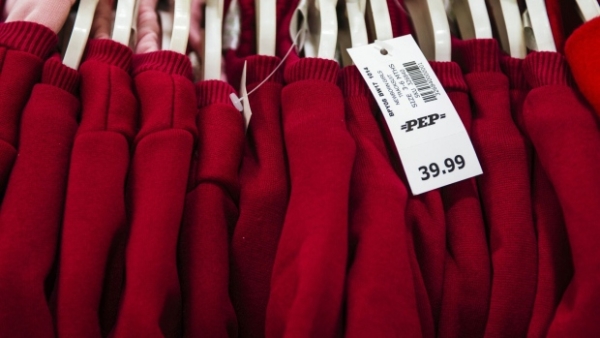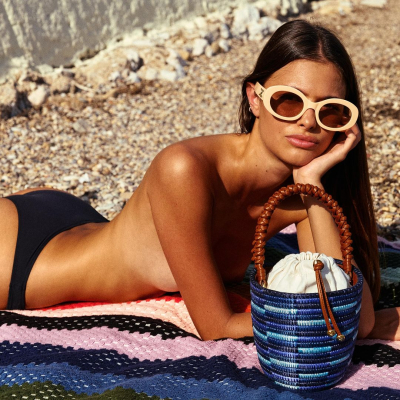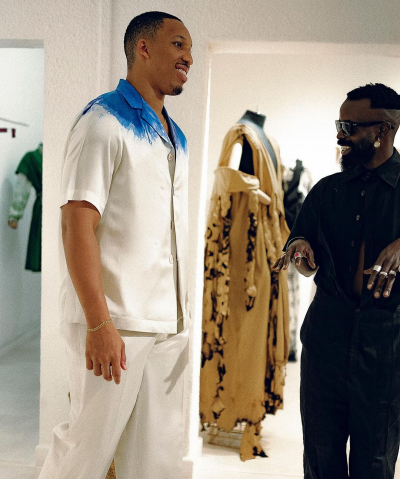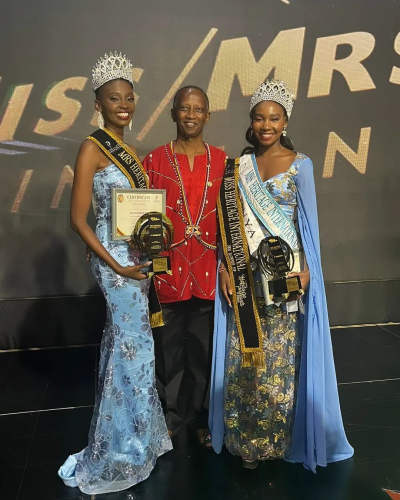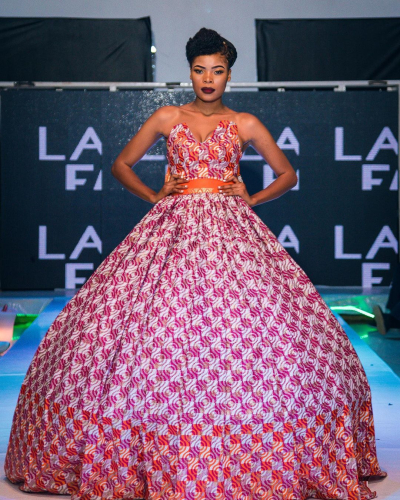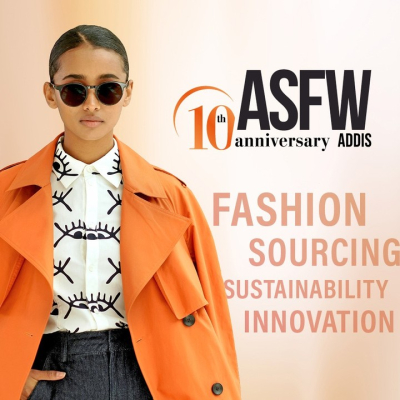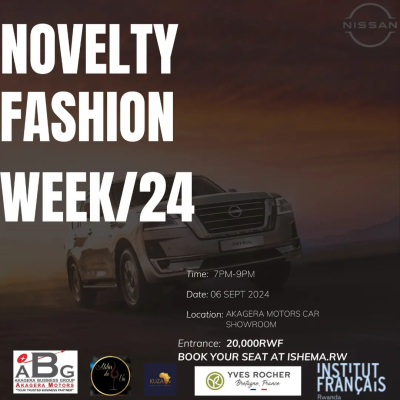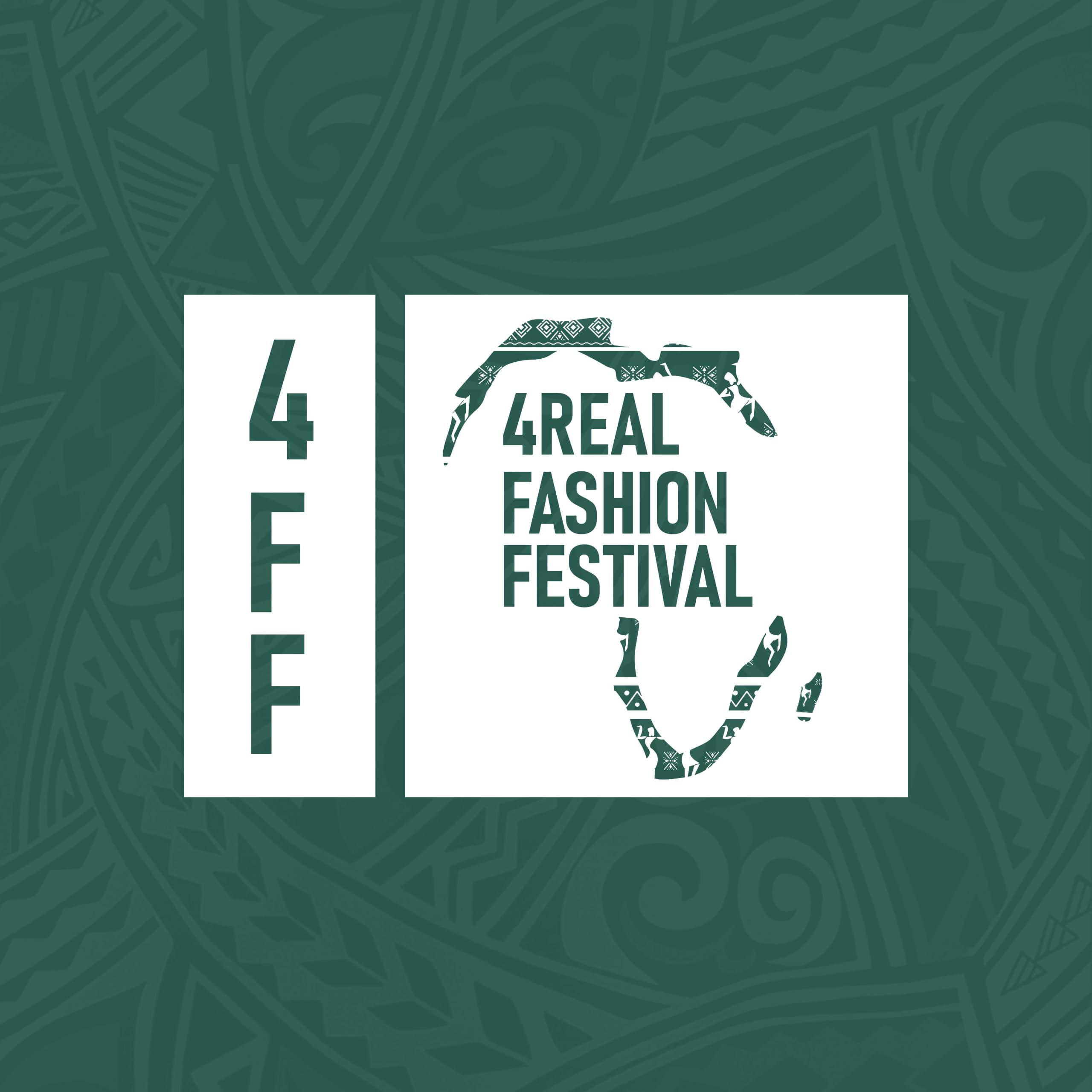
RCFS
It is not only in Burundi where you will hear critical comments about clothes and fashion styles in the pageants, especially "Miss or Mrs."
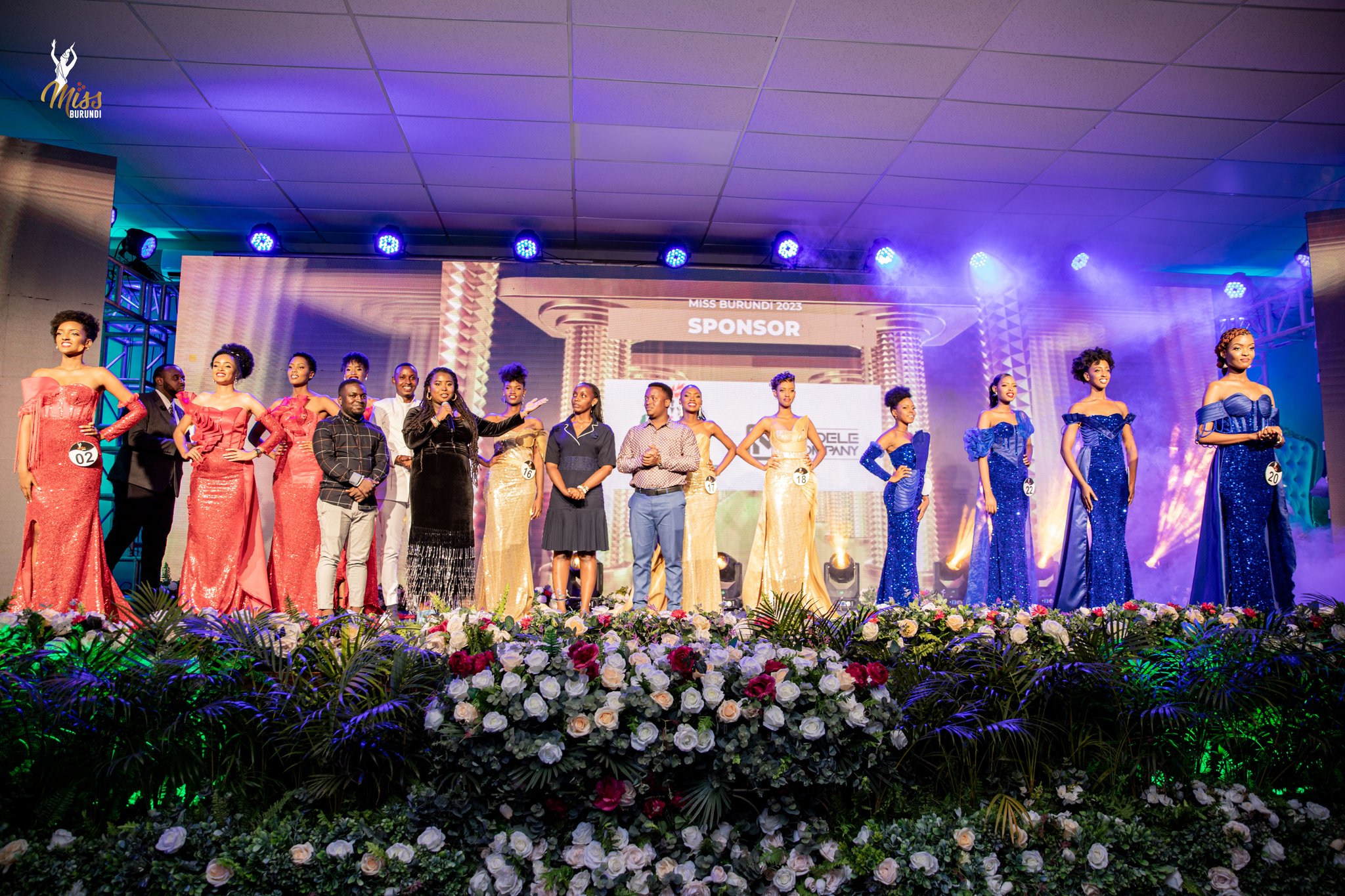 Miss Burundi 2023 contestants
Miss Burundi 2023 contestants
Most African countries still respect their culture in terms of fashion and styling. However, colonization changed the way Africans used to think when it comes to fashion and style. Currently, the public can judge fashion clothes anytime and anywhere but for most people when it is in fashion shows and beauty pageants their criticism becomes more than a debate. For example, Bikini wear. In Miss Rwanda, most of the female candidates who were selected to represent the country international level, especially in Miss Earth refused to wear Bikinis " I better lose the crown instead of wearing a Bikini in public" said Miss Uwase Honorine known as Miss Igisabo in Miss Earth 2017 who was presenting Rwanda.
In this story originally by Anaise Audrey Masabo. It describes comments from fashion lovers and local fashion designers who did not appreciate the fashion styles worn by the ladies on the final day to select Miss Burundi 2023.
Is it poor fashion, clothes, stylists, or fashion designers who are not interested in the Miss Burundi pageant?
One week before the finals of Miss Burundi 2023, the writer Anaise Audrey Masabo come back to the recent semifinals of this pageant which had been continuously a stage on which local designers have adapted it as an advertisement platform.
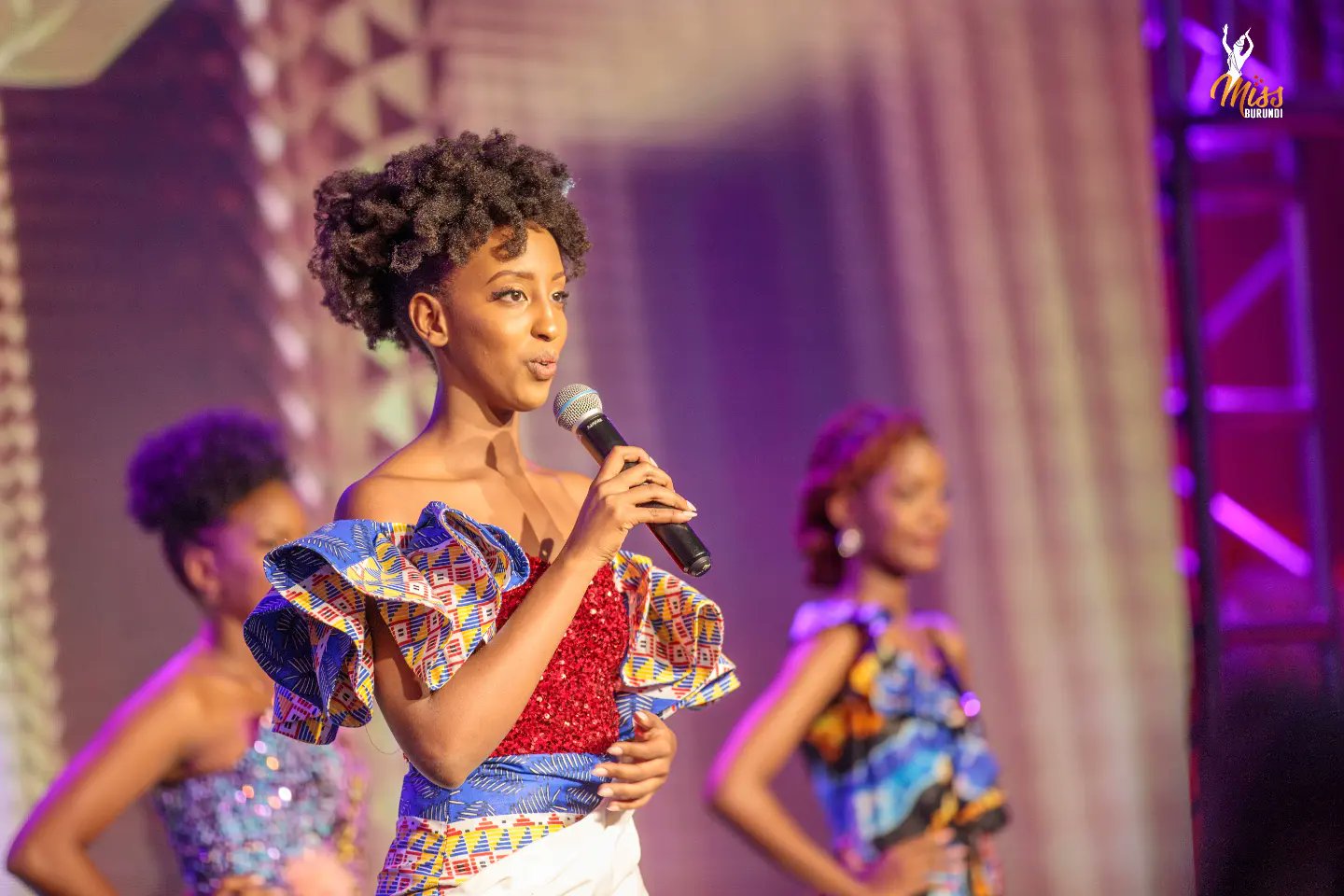
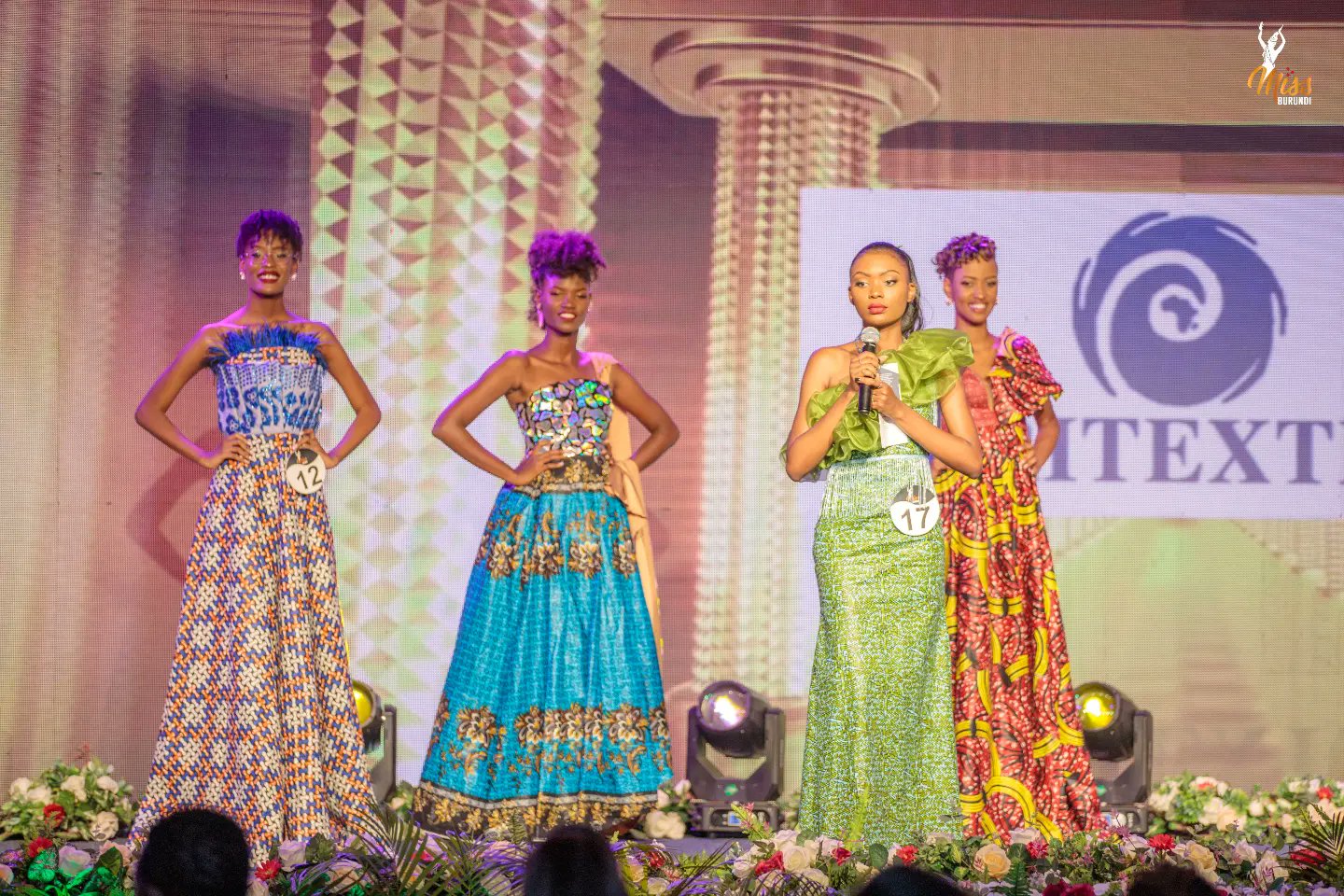 Miss Burundi 2023 contestants
Miss Burundi 2023 contestants
With the growing number of designers reaching out for brand recognition through the offer of sponsorship towards the Miss Burundi organization and yet a continuously rising concern as to the appearance of candidates on the final day. Questions continue to arise.
Has there not been a thorough concentration on clothing criteria, or are Burundian fashion icons asleep or non-existent?
This Saturday twentieth May 2023, Burundi witnessed the Miss Burundi semifinals, an important event capable of altering the life of candidates and creating a spot for the growth of ideas within the Burundian population. While this would have served as an opportunity for local designers and stylists to build the long sort for recognition, participants are obliged to style themselves individually for the Semi-Finals as it has been for several years.
Is it a question of ignorance? Lack of finances? Why do we prefer to be left in the back seat of most pageants? Those are some of the many questions circulating pageant viewers.
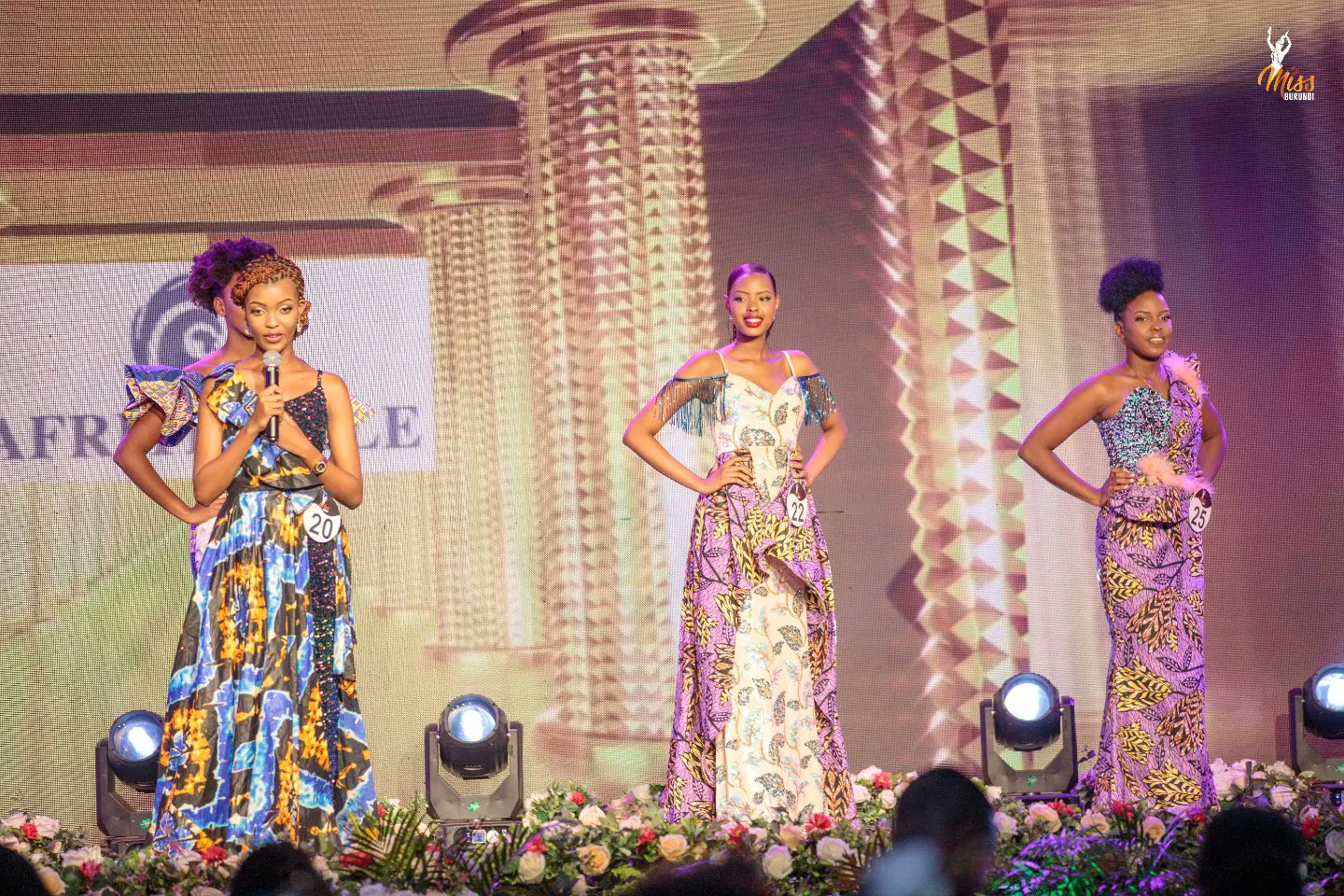 Miss Burundi 2023 contestants
Miss Burundi 2023 contestants
The tip, the top, and the tabs
Stepping into a night where we were unable to neither witness preparations nor identify what happens behind closed doors, various fashion gurus continue to question the necessity of a stylist in the MISS BURUNDI committee. This year appeared to be a rush from a workday interview right into a much-needed pageant.
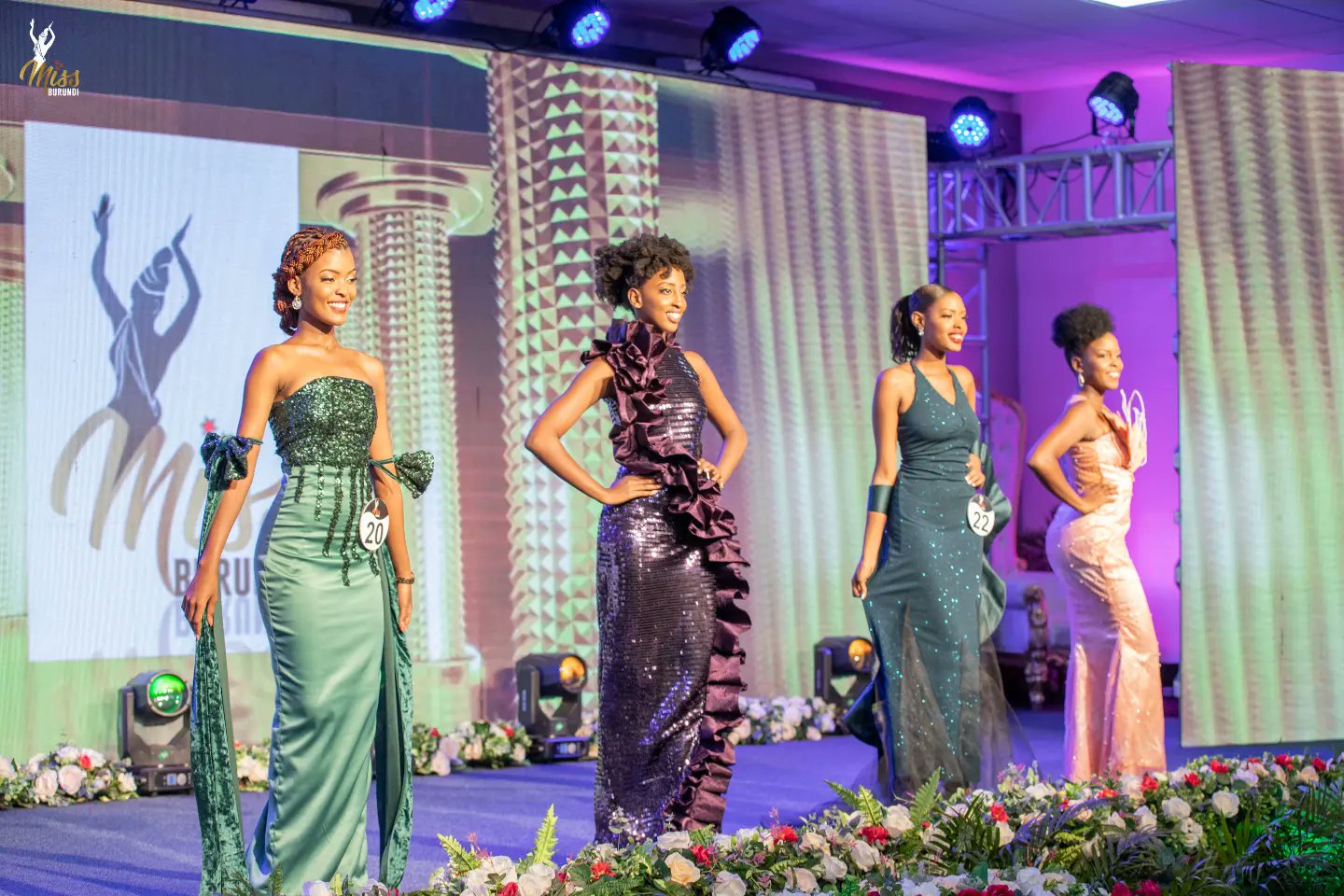 Miss Burundi 2023 contestants
Miss Burundi 2023 contestants
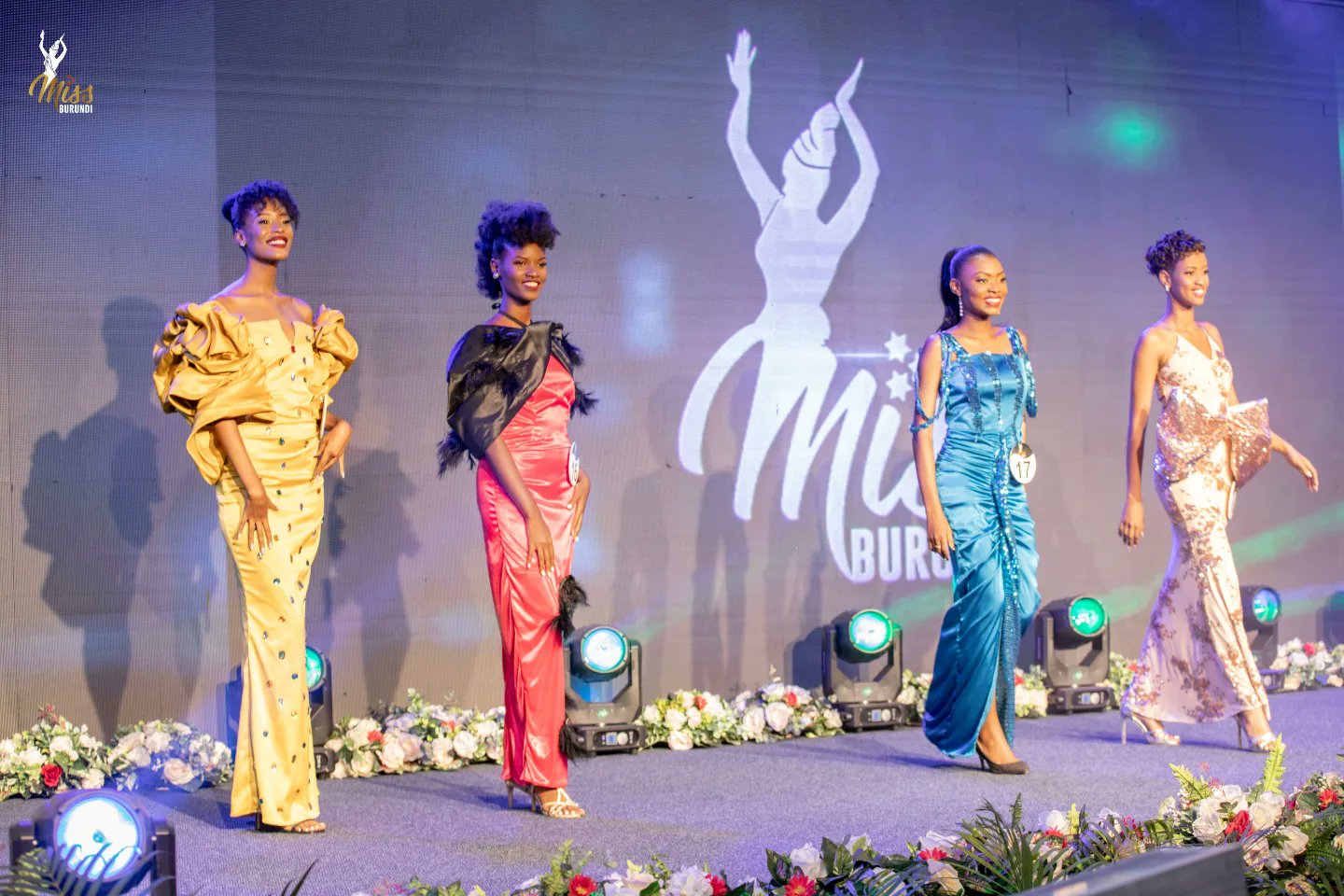 Miss Burundi 2023 contestants
Miss Burundi 2023 contestants
When asked what should be changed when it comes to the clothing of a group of women who are set to represent the nation worldwide or the need for a stylist within the organization, one of this year's committee members, Ruhara Ketty replied: "I do not have much to say in regards to this matter but I genuinely think the ladies presented themselves very well, very politely with a lot of humility. I do not have anything I would have desired for them to change. They were very well dressed, and presented themselves beautifully as well."
 Ruhara Ketty is among the committee member of the organization Miss Burundi 2023
Ruhara Ketty is among the committee member of the organization Miss Burundi 2023
Viewers complain though
Niyonkuru Jean Bedel owner of Timiza Fashion; a brand that has operated in Burundi for over eight years says: "In my most genuine opinion the ladies were dressed badly, horribly dressed. That affects us designers at large in that it gives us a bad image. The Miss Burundi committee knows us; they have seen our work over and over again so until now I fail to understand why they do not give us or what we do value. If they honestly cared about this aspect of the competition, they'd get in touch with us and ask for our help."
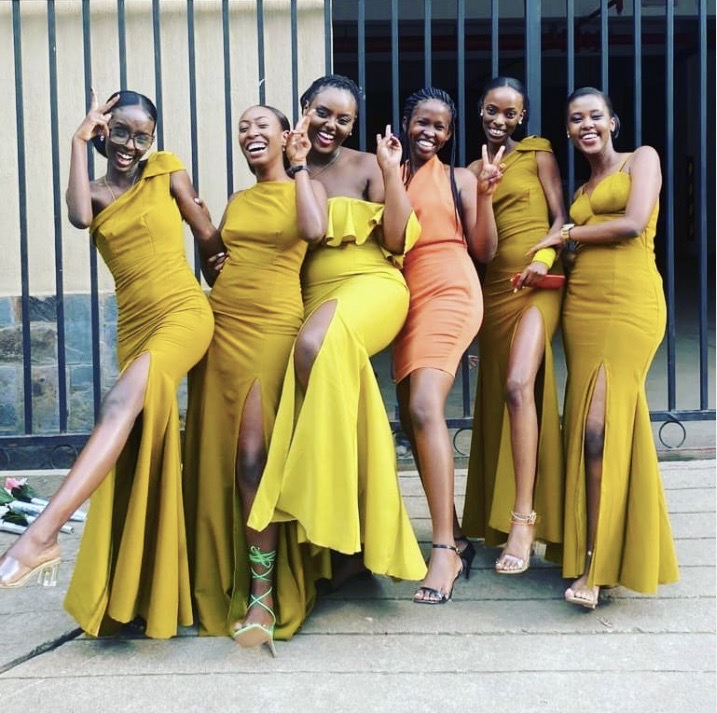 Dresses made by Timiza Fashion
Dresses made by Timiza Fashion
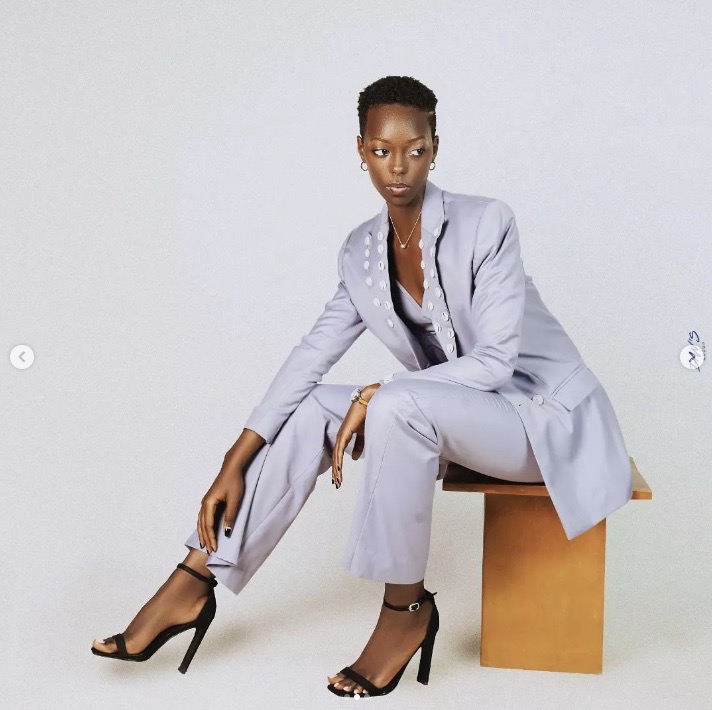 Made by Timiza Fashion
Made by Timiza Fashion
With an elegant choice of color, the song that has rung over Burundian soil constantly rotates on the concept of clothing choice. Overlooking the variety of options on designers and stylists available locally, there stands a need to pinpoint where a blind spot begins within their preparations or committee at large.
"This year, as compared to previous competitions, a few of the girls tried. A fair number however still came as though they were attending a salsa dance evening or going to a wedding. There is still some sort of negligence in the ladies' attires which is visible in the imbalance of style. Some people dress really well others as though they have no idea what kind of event they are attending", said Kazoza Martial, a fashion content creator who was privileged to attend the event and undergo his own personal analysis.
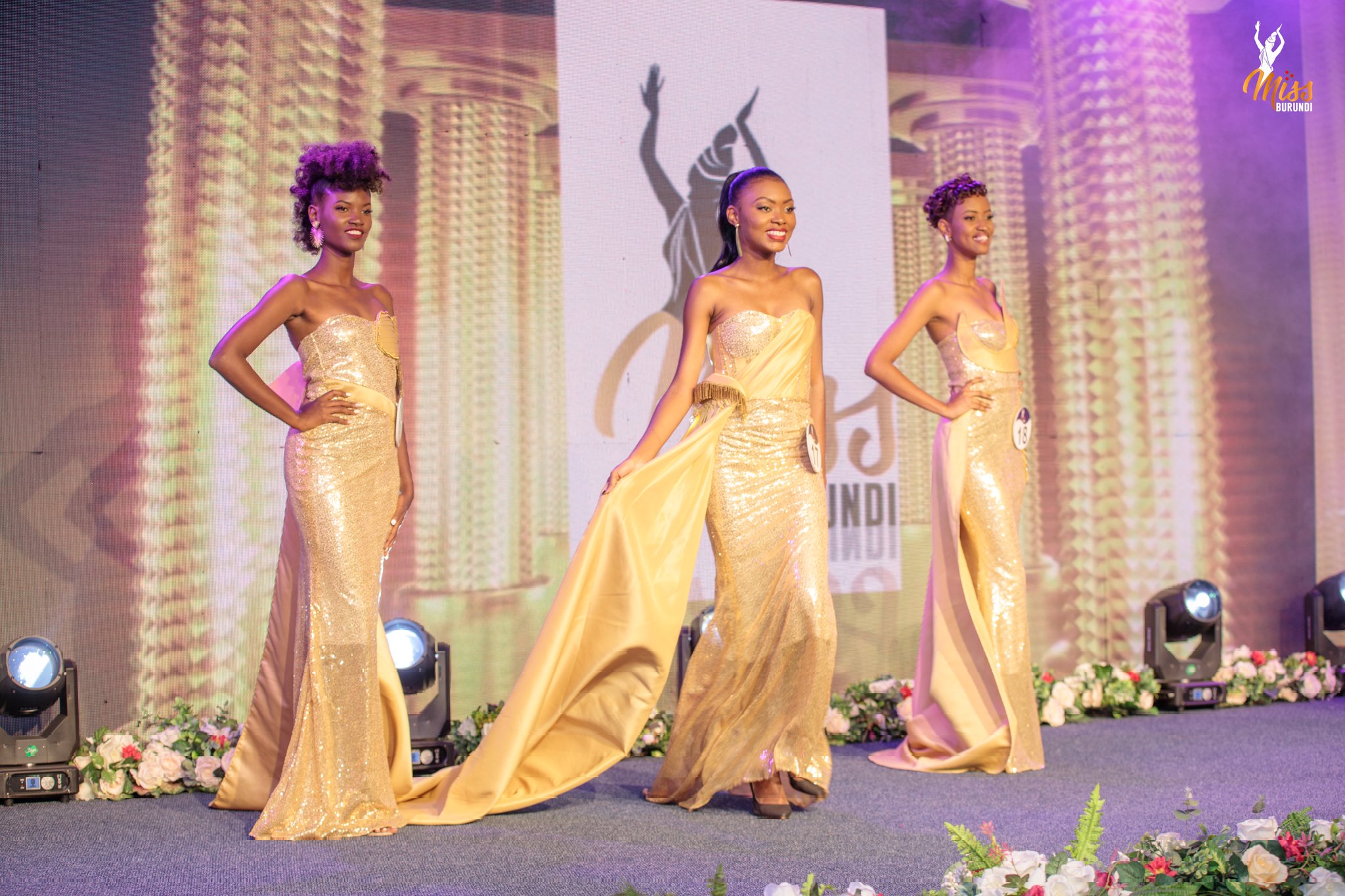 Miss Burundi 2023 contestants
Miss Burundi 2023 contestants
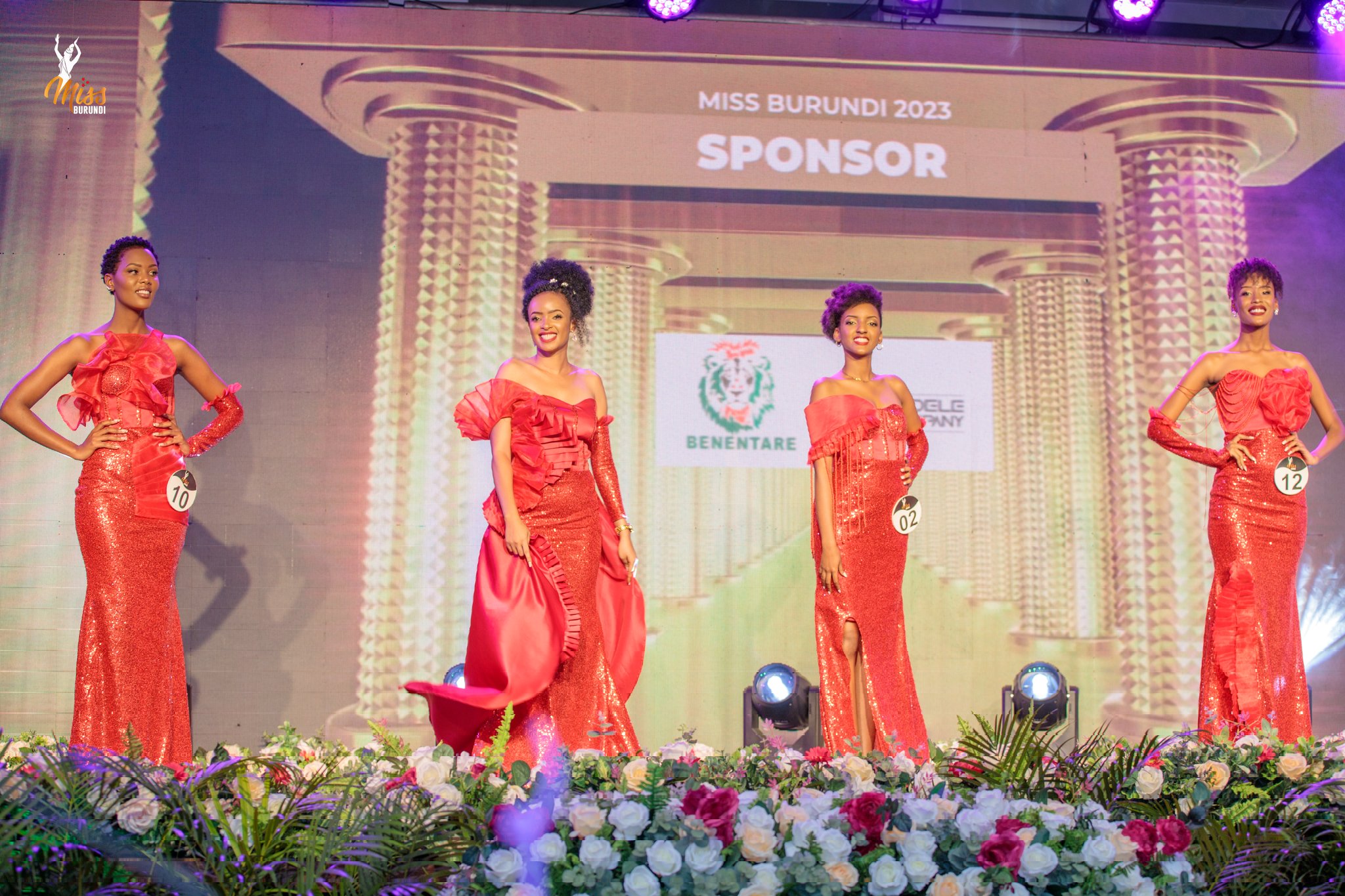 Miss Burundi 2023 contestants
Miss Burundi 2023 contestants
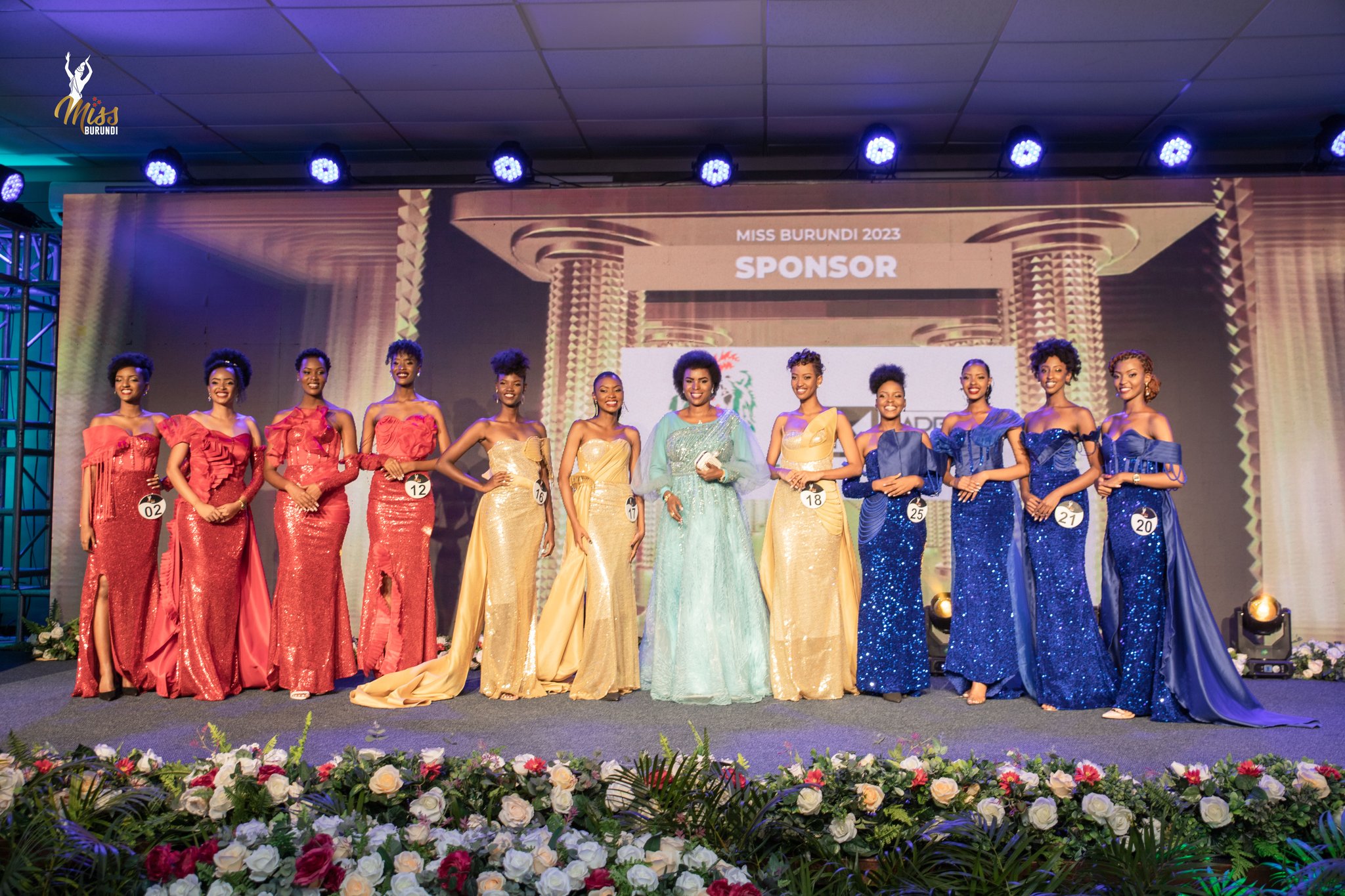 Candidates on the final day of Miss Burundi 2023. The First Lady of Burundi H.E Mrs Angeline Ndayishimiye was among the guests who attended the event.
Candidates on the final day of Miss Burundi 2023. The First Lady of Burundi H.E Mrs Angeline Ndayishimiye was among the guests who attended the event.
With questions still arising in the area of Miss Burundi pageants attire, is it necessary that a nation comes together in raising funds to eliminate public humiliation? Is there anything we can do to build a pageant worth showcasing worldwide? What boundaries do they encounter that limit the penetration of brand-new ideas into the awakening of long-lasting fashion solutions? These are only a few of the questions that remain unanswered.
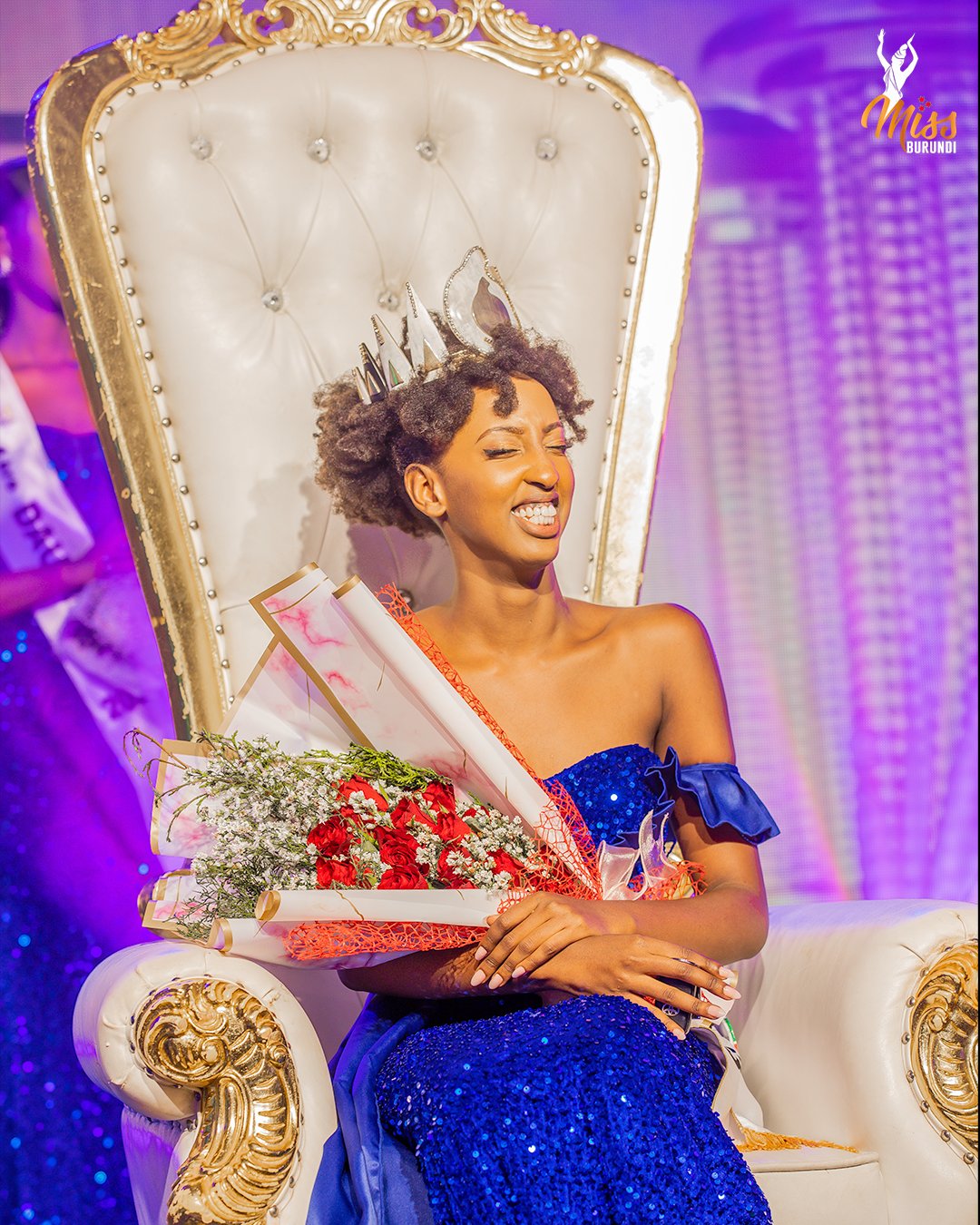 Lellie Carelle Ndayizeye won Miss Burundi 2023
Lellie Carelle Ndayizeye won Miss Burundi 2023
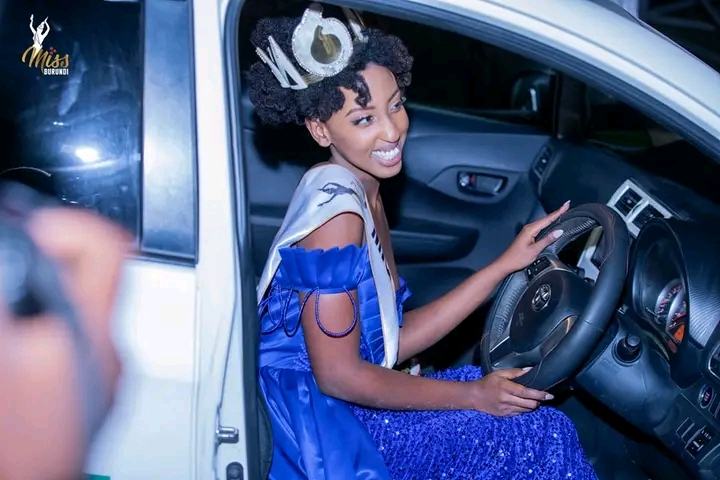 Lellie Carelle Ndayizeye won Miss Burundi 2023 and got a car as a prize
Lellie Carelle Ndayizeye won Miss Burundi 2023 and got a car as a prize
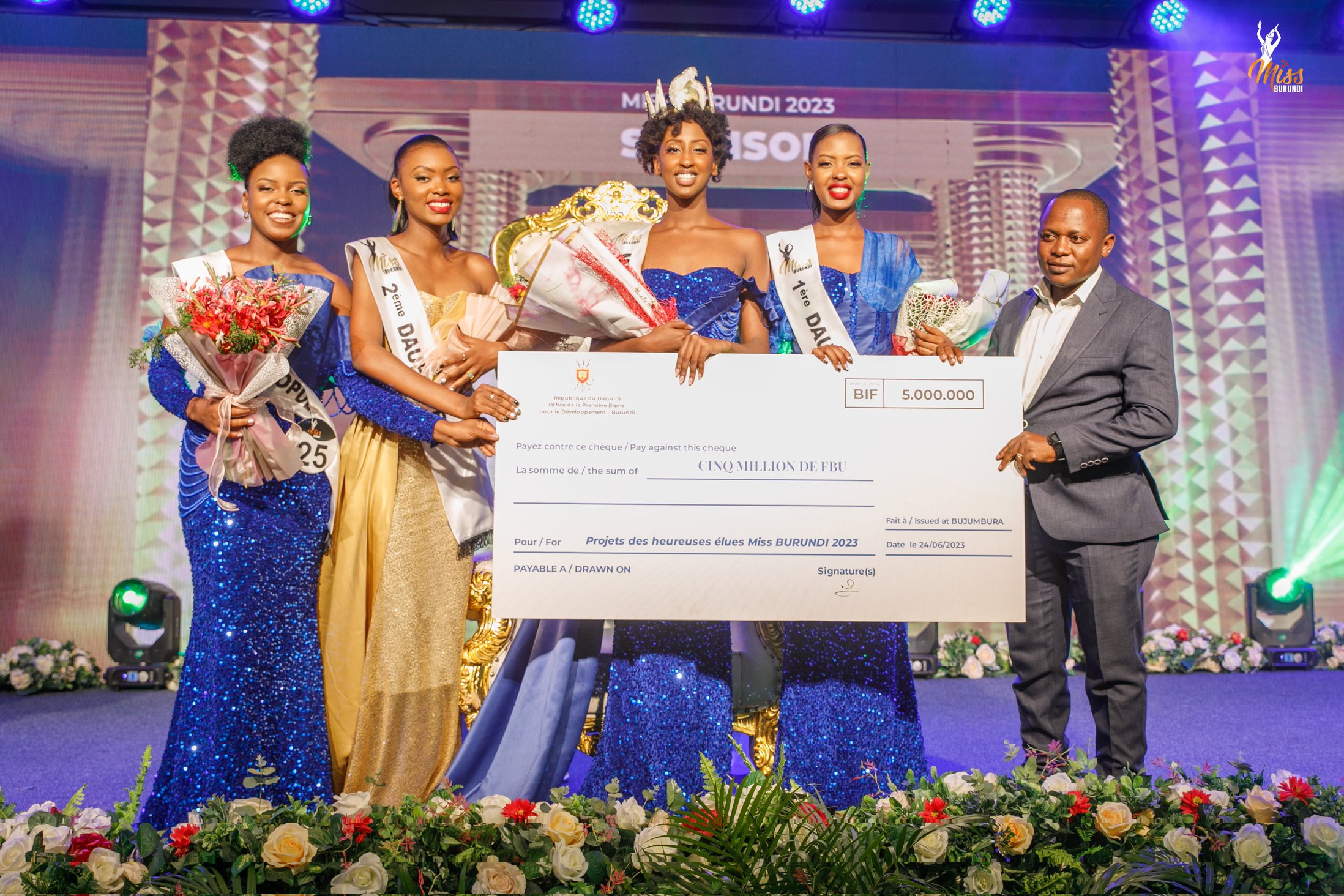 Lellie Carelle Ndayizeye won Miss Burundi 2023. On the photo with her 1st Runner up & the 2nd
Lellie Carelle Ndayizeye won Miss Burundi 2023. On the photo with her 1st Runner up & the 2nd
Read more about PLANS & PROJECTS of Miss Lellie Carelle Ndayizeye
It is not only in Burundi where you will hear critical comments about clothes and fashion styles in the pageants, especially "Miss or Mrs."
 Miss Burundi 2023 contestants
Miss Burundi 2023 contestants
Most African countries still respect their culture in terms of fashion and styling. However, colonization changed the way Africans used to think when it comes to fashion and style. Currently, the public can judge fashion clothes anytime and anywhere but for most people when it is in fashion shows and beauty pageants their criticism becomes more than a debate. For example, Bikini wear. In Miss Rwanda, most of the female candidates who were selected to represent the country international level, especially in Miss Earth refused to wear Bikinis " I better lose the crown instead of wearing a Bikini in public" said Miss Uwase Honorine known as Miss Igisabo in Miss Earth 2017 who was presenting Rwanda.
In this story originally by Anaise Audrey Masabo. It describes comments from fashion lovers and local fashion designers who did not appreciate the fashion styles worn by the ladies on the final day to select Miss Burundi 2023.
Is it poor fashion, clothes, stylists, or fashion designers who are not interested in the Miss Burundi pageant?
One week before the finals of Miss Burundi 2023, the writer Anaise Audrey Masabo come back to the recent semifinals of this pageant which had been continuously a stage on which local designers have adapted it as an advertisement platform.

 Miss Burundi 2023 contestants
Miss Burundi 2023 contestants
With the growing number of designers reaching out for brand recognition through the offer of sponsorship towards the Miss Burundi organization and yet a continuously rising concern as to the appearance of candidates on the final day. Questions continue to arise.
Has there not been a thorough concentration on clothing criteria, or are Burundian fashion icons asleep or non-existent?
This Saturday twentieth May 2023, Burundi witnessed the Miss Burundi semifinals, an important event capable of altering the life of candidates and creating a spot for the growth of ideas within the Burundian population. While this would have served as an opportunity for local designers and stylists to build the long sort for recognition, participants are obliged to style themselves individually for the Semi-Finals as it has been for several years.
Is it a question of ignorance? Lack of finances? Why do we prefer to be left in the back seat of most pageants? Those are some of the many questions circulating pageant viewers.
 Miss Burundi 2023 contestants
Miss Burundi 2023 contestants
The tip, the top, and the tabs
Stepping into a night where we were unable to neither witness preparations nor identify what happens behind closed doors, various fashion gurus continue to question the necessity of a stylist in the MISS BURUNDI committee. This year appeared to be a rush from a workday interview right into a much-needed pageant.
 Miss Burundi 2023 contestants
Miss Burundi 2023 contestants
 Miss Burundi 2023 contestants
Miss Burundi 2023 contestants
When asked what should be changed when it comes to the clothing of a group of women who are set to represent the nation worldwide or the need for a stylist within the organization, one of this year's committee members, Ruhara Ketty replied: "I do not have much to say in regards to this matter but I genuinely think the ladies presented themselves very well, very politely with a lot of humility. I do not have anything I would have desired for them to change. They were very well dressed, and presented themselves beautifully as well."
 Ruhara Ketty is among the committee member of the organization Miss Burundi 2023
Ruhara Ketty is among the committee member of the organization Miss Burundi 2023
Viewers complain though
Niyonkuru Jean Bedel owner of Timiza Fashion; a brand that has operated in Burundi for over eight years says: "In my most genuine opinion the ladies were dressed badly, horribly dressed. That affects us designers at large in that it gives us a bad image. The Miss Burundi committee knows us; they have seen our work over and over again so until now I fail to understand why they do not give us or what we do value. If they honestly cared about this aspect of the competition, they'd get in touch with us and ask for our help."
 Dresses made by Timiza Fashion
Dresses made by Timiza Fashion
 Made by Timiza Fashion
Made by Timiza Fashion
With an elegant choice of color, the song that has rung over Burundian soil constantly rotates on the concept of clothing choice. Overlooking the variety of options on designers and stylists available locally, there stands a need to pinpoint where a blind spot begins within their preparations or committee at large.
"This year, as compared to previous competitions, a few of the girls tried. A fair number however still came as though they were attending a salsa dance evening or going to a wedding. There is still some sort of negligence in the ladies' attires which is visible in the imbalance of style. Some people dress really well others as though they have no idea what kind of event they are attending", said Kazoza Martial, a fashion content creator who was privileged to attend the event and undergo his own personal analysis.
 Miss Burundi 2023 contestants
Miss Burundi 2023 contestants
 Miss Burundi 2023 contestants
Miss Burundi 2023 contestants
 Candidates on the final day of Miss Burundi 2023. The First Lady of Burundi H.E Mrs Angeline Ndayishimiye was among the guests who attended the event.
Candidates on the final day of Miss Burundi 2023. The First Lady of Burundi H.E Mrs Angeline Ndayishimiye was among the guests who attended the event.
With questions still arising in the area of Miss Burundi pageants attire, is it necessary that a nation comes together in raising funds to eliminate public humiliation? Is there anything we can do to build a pageant worth showcasing worldwide? What boundaries do they encounter that limit the penetration of brand-new ideas into the awakening of long-lasting fashion solutions? These are only a few of the questions that remain unanswered.
 Lellie Carelle Ndayizeye won Miss Burundi 2023
Lellie Carelle Ndayizeye won Miss Burundi 2023
 Lellie Carelle Ndayizeye won Miss Burundi 2023 and got a car as a prize
Lellie Carelle Ndayizeye won Miss Burundi 2023 and got a car as a prize
 Lellie Carelle Ndayizeye won Miss Burundi 2023. On the photo with her 1st Runner up & the 2nd
Lellie Carelle Ndayizeye won Miss Burundi 2023. On the photo with her 1st Runner up & the 2nd
Read more about PLANS & PROJECTS of Miss Lellie Carelle Ndayizeye
Tanzania has a vibrant and diverse fashion industry, with talented designers creating unique and stylish clothing that showcases the country’s rich culture and traditions. Here are some notable Tanzanian fashion designers:
Doreen Mashika
All of the Zanzibar-based designer Doreen Mashika’s creations feature modern takes on classic Tanzanian motifs and fabrics. The fashion labels Anthropologie and Edun are among those that have worked with Doreen Mashika. Her Zanzibar label’s outpost was named best by Vogue.
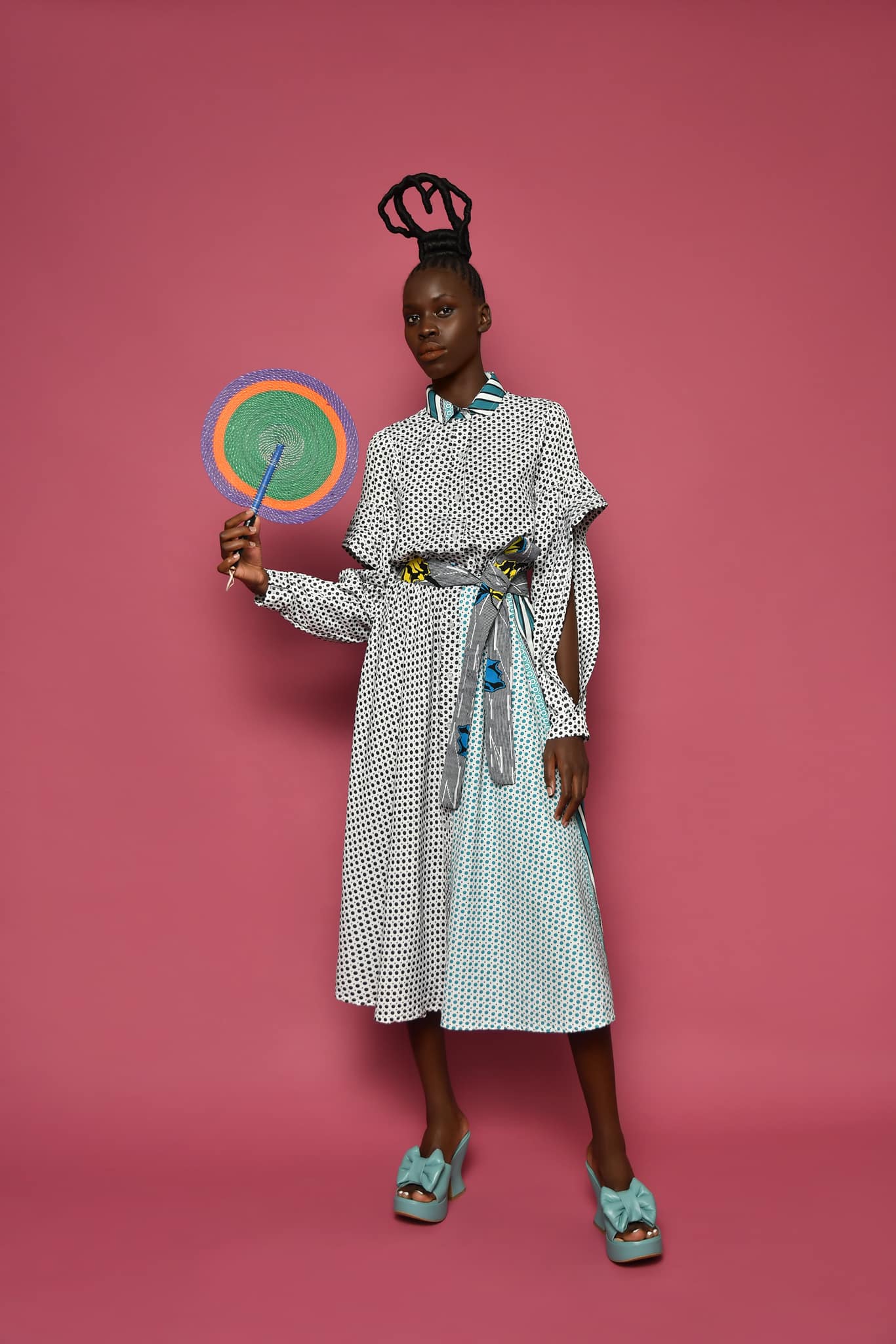
Dress Made by Doreen Mashika
Anne Kiwia
Anne Kiwia started her company in 2012. Colorful up-cycled headbands by Anne Kiwia, who sources vintage textiles from the markets of Dar Es Salaam, have been featured in numerous magazines, including Vogue.
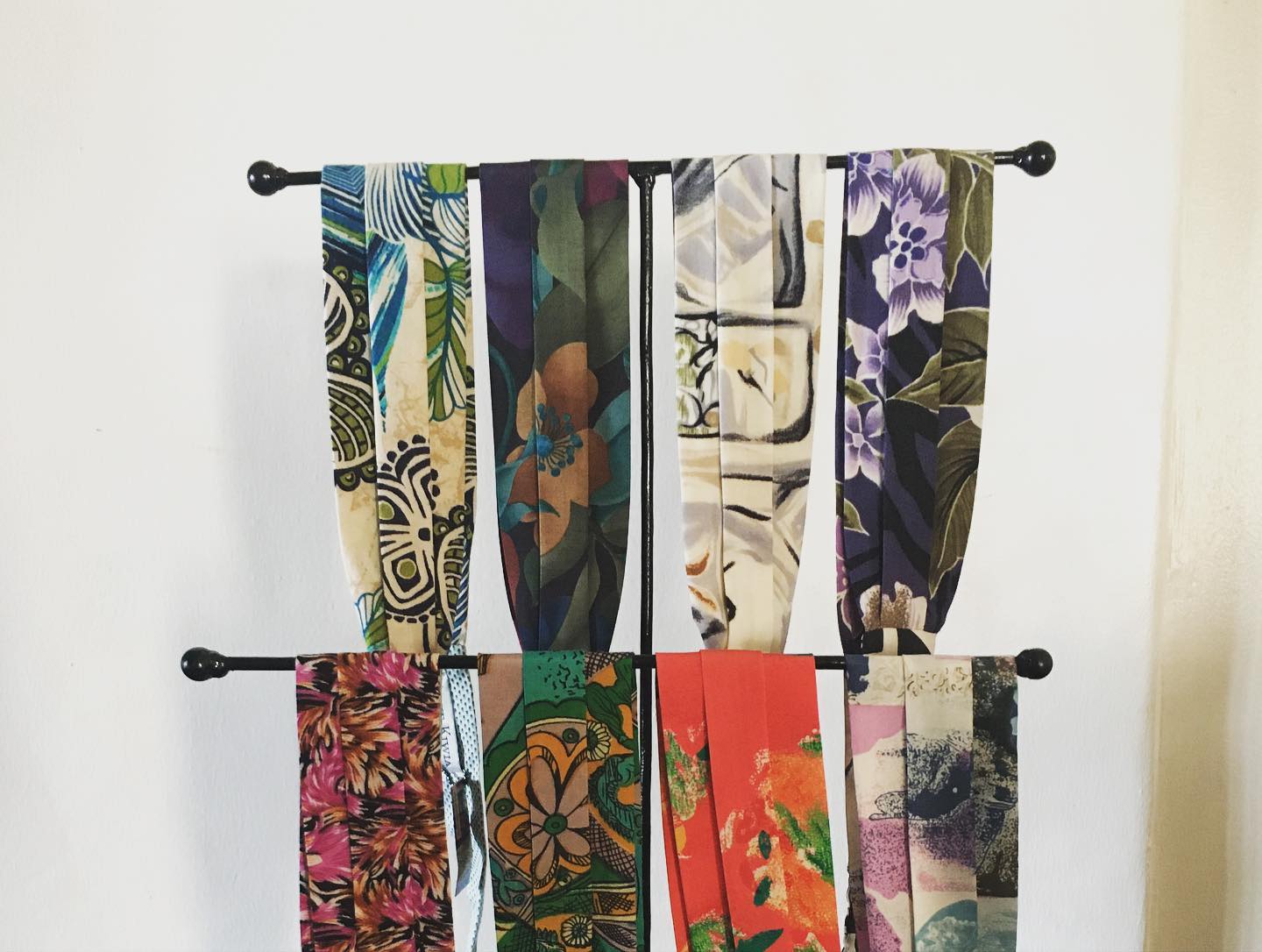
Ties and belts made by Anne Kiwia
Mustafa Hassanali
A doctor by trade who dabbles in fashion design on the side. His career has taken off, with exhibitions in over 21 countries. One of his earlier designs has become his signature evening gown, worn by the likes of Hoyce Temu, Naomi Campbell, and Miss Tanzania in 1999. Hassanali developed Swahili Fashion Week in 2008 as a platform for established and emerging fashion designers and models. Swahili Fashion Week is currently one of East and Central Africa’s most influential fashion weeks.
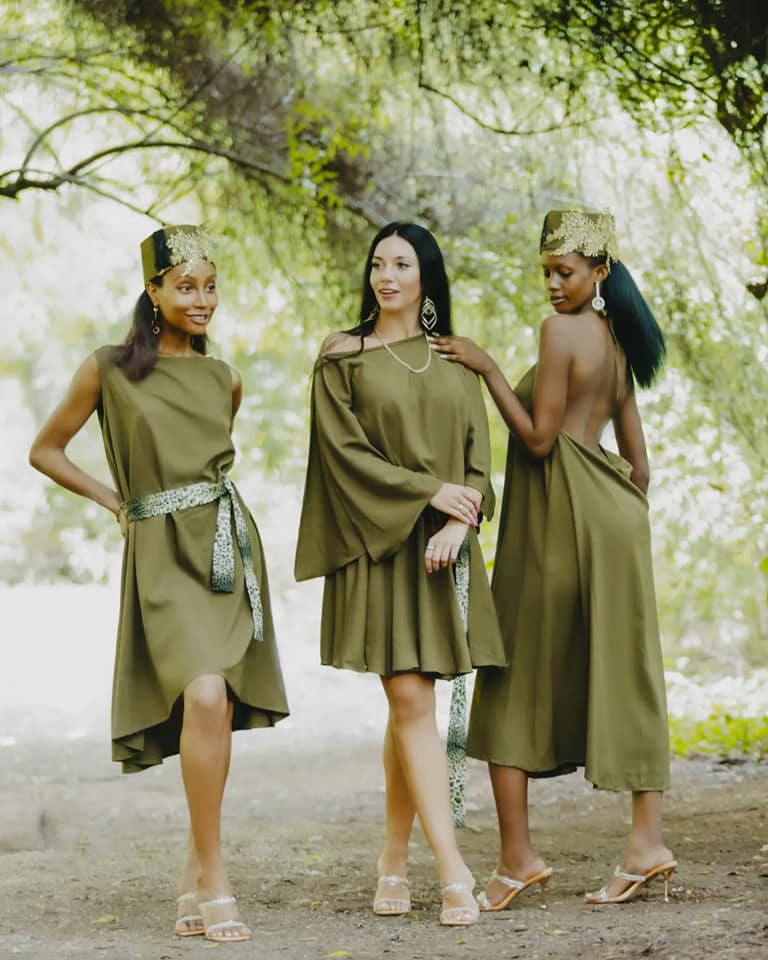
Creations by Mustafa Hassanali
KiKi Fashion
Christine Kissa Zimbia, also known as Kiki Zimba, founded Kiki’s Fashion. Kiki’s Fashion has stunning dresses and skirts that catch anyone’s eye.
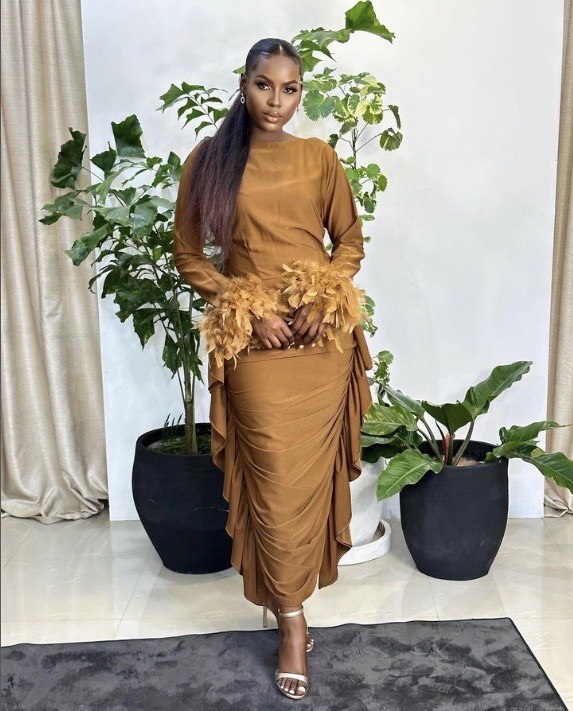
Made by KiKi Fashion
Naledi Fashion House
This was started in 2008 by Kemi Kalikawe. Before working in the fashion sector, she was an interior decorator. Kemi Kalikawe makes casual or modern Afro-urban clothing for both ladies and men.
Eve Collection
Evelyn Rugemalira is in charge of the creative aspects of the Eve Collections line. Her creations are always edgy and bold, with a wide range of possibilities for each event. Miss Tanzania 2012, Wema Septu, a notable businesswoman and actress in Tanzania, and Madame Rita Paulsen of Bongo Star are just a few famous people Evelyn has dressed.
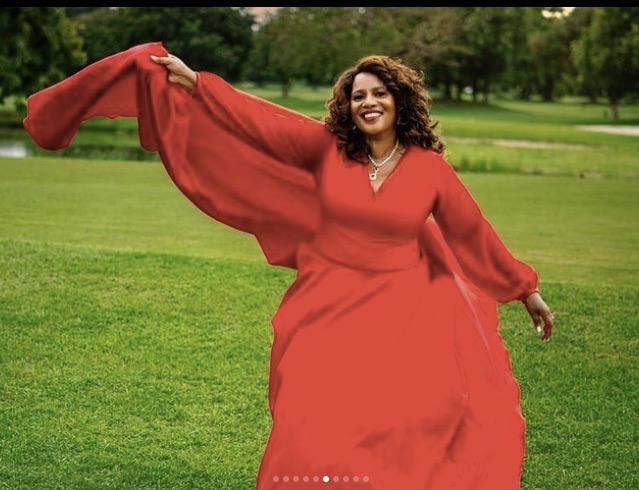
Made by Eve Collection
Jamilla Vera Swai
Known for her glitzy and fashionable designs. Jamilla’s love for fashion began when she was a little girl and was inspired by her aunt’s fashion doodles; her bold, colorful designs are sure to turn heads.
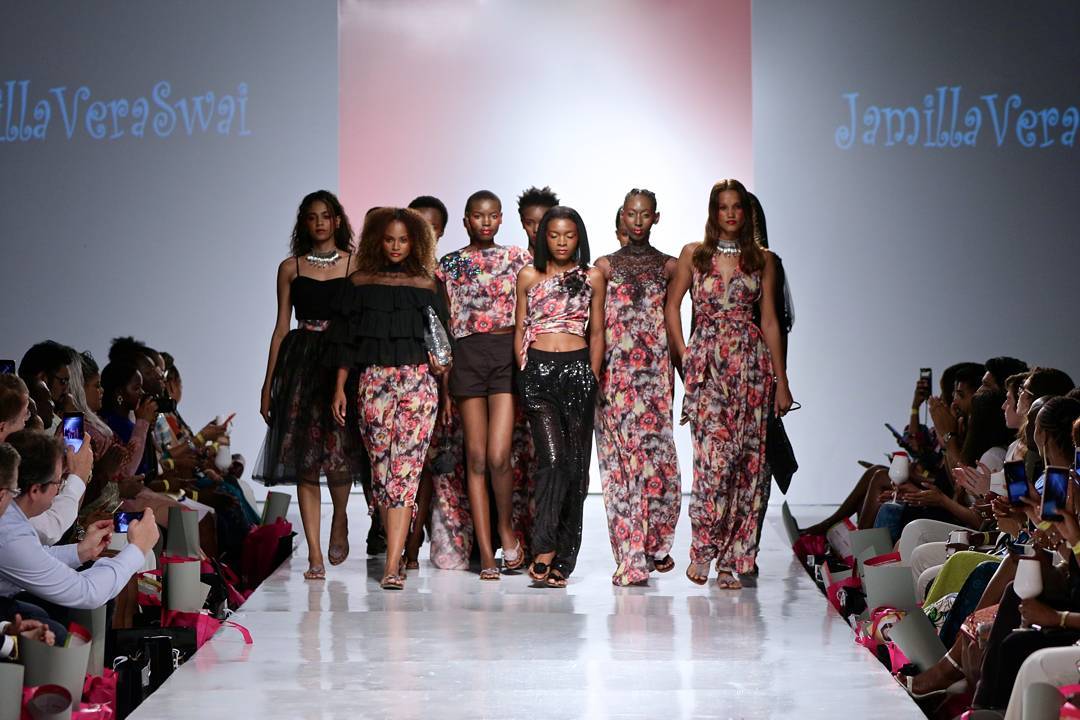
Collection by Jamilla Vera Swai
Khadija Mwanamboka
After more than two decades in the business, Khadija Mwanamboka has earned a reputation as a leading figure as a Tanzania fashion designer. She is passionate about giving back; therefore, she started a company called Tanzania Mitindo House as a social effort to employ fashion design in the country to raise money for local charities that support HIV/AIDS orphans.
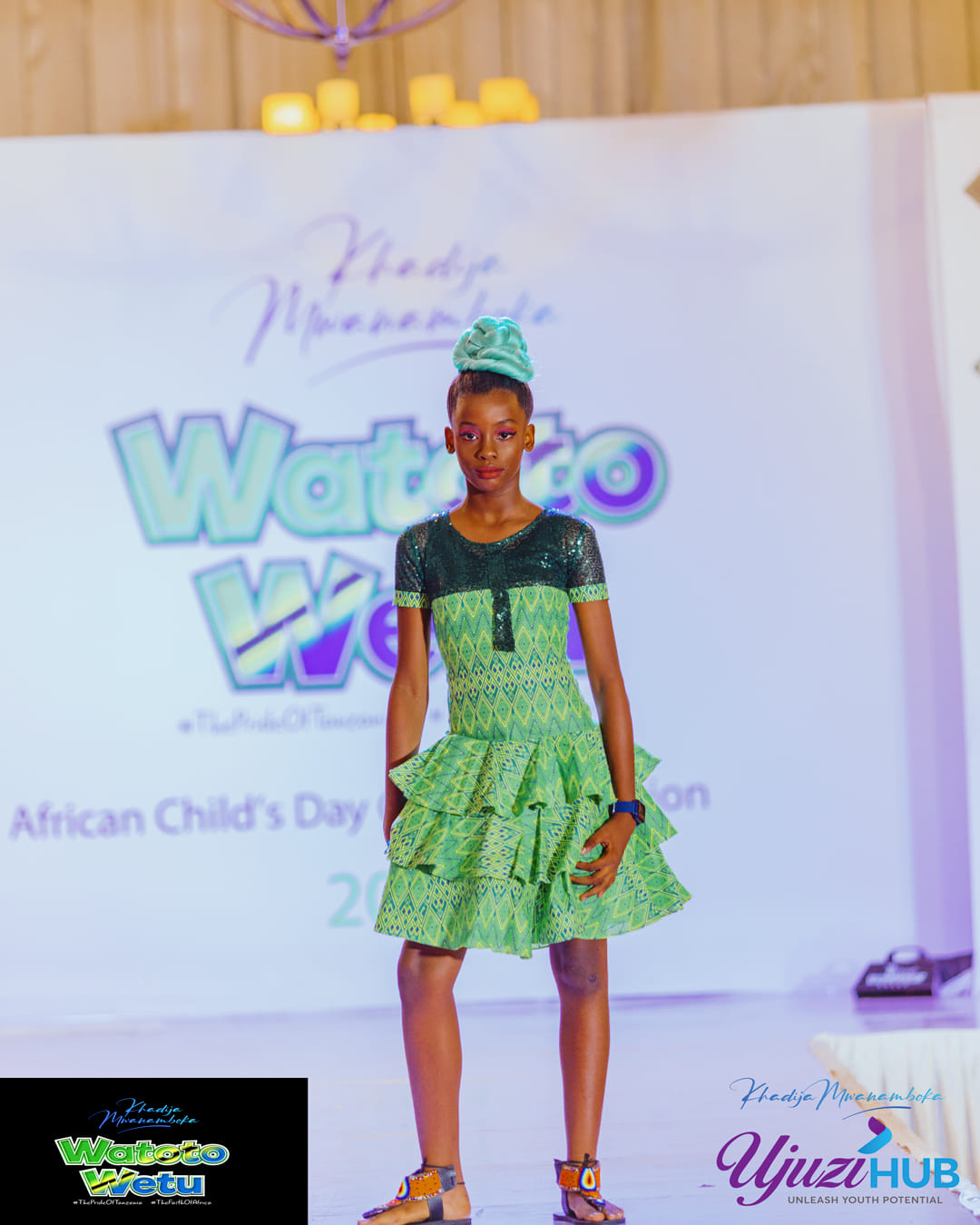
Made by Khadija Mwanamboka
These are just a few of the many talented fashion designers in Tanzania. The country’s fashion industry continues to evolve, with new designers emerging and making their mark on the global fashion scene.
For more articles related to Tanzania Clothing and Dresses, click here!
GOMA, Congo (AP) — As she puts the final touches on her latest collection, a fashion designer in Congo sees the pinning, sewing and ironing as a way to send a message to the world. “Through art, all the colors that we will express, through our clothes, it will be full of emotions, trying to explain what we are going through in our country,” Flore Mfuanani Nsukula says in her Goma workshop.
Conflict in eastern Congo has gone on for decades as myriad armed groups fight for control of valuable mineral resources. There are frequent mass killings, and the violence has triggered an exodus of refugees. On Saturday, organizers held the ninth edition of the Liputa fashion show, which they say is an opportunity to inspire peace and peaceful coexistence across Africa.
“Africans must be one, be united. It is true that we have a very wide cultural diversity, but this diversity must bring us together,” Cameroonian fashion designer Délia Ndougou said. She presented a collection inspired by her nation’s flag.
“We really wanted to convey joy in the clothes, peace in the clothes, very cheerful styles, a question of making the world smile,” added Chadrac Lumumba, a creative stylist from Kinshasa. The Goma show featured designers, models and artists from Cameroon, Senegal, Burundi, France, the U.S., and more.
“We think we have sent a message to say that all these people who have come from elsewhere, that means that the situation is already improving,” Nsukula said after debuting her new collection on the runway.
“We had those who came from the Central African Republic, Cameroon, USA, France, to come and present their collections. That means that there is hope, security, with time, it will improve.” In addition to highlighting Congo’s fashion industry, the show also aims to promote a more positive view of the continent.
“We presented these collections, not only to sell the visions of these creators, but to show that in Africa, in (Congo), the areas that are considered ‘red,’ we can do things there that we see in other countries that have peace,” says organizer David Ngulu.
“I think that each creator contributed to love, peace and living together,” he said.
Source BY JUSTIN KABUMBA at AP
Berabose Designs is one of the brands that made it as a finalist of the third edition of the Fashionomics Africa Contest. The United Nations Environment Programme (UNEP), which was part of the contest jury, expressed its delight in seeing a real increase in the quality of applications and noted that the three finalists are true testimonials of the bubbling textile scene on the African continent and the power that circular business models represent.
Berabose Designs has positioned itself at the forefront of the fashion technology revolution, by producing sustainable garments made by combining natural sustainable practices with 3D production modelling. In this week’s article we learn more about how Berabose Designs wowed the Fashionomics Africa Contest judges, through its unique business model, which is founded on sustainability, innovation, and inclusion.
About Berabose Designs
Berabose Designs is a Rwandan-based business founded by Elisabeth Berabose. It is focused on the production of innovative garments made from organic cotton, dyed with agricultural waste and plant-based dyes. Optimization of the fashion design process is a defining feature of how the sustainable brand operates. After successfully launching its ‘27’ collection, the brand recognized the need to meet unique consumer’s needs through custom clothing. However, traditional custom-made methods posed challenges such as multiple interactions, fittings, and fabric selection time, especially without proper infrastructure. In response to these problems, Berabose Designs developed a three-phased strategy that combines its expertise in 3D product modeling with cutting-edge technology. The process includes a digitized custom-making process that allows users to easily select fabric, style, color, and measurements online, and a digital fitting room where consumers can model their looks based on their body shape and measurements.
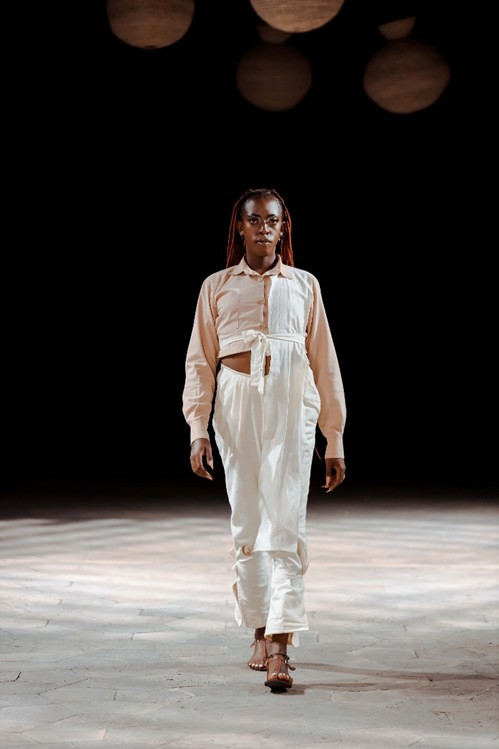 Dusabamahoro pants
Dusabamahoro pants
Development of this process was a leap of faith, in which Berabose took a chance on fashion technology which is practically non-existent, despite research that has shown its promise. Berabose Designs adopted use of fashion technologies that use algorithms to derive a shopper's 3D body shape using augmented reality to make personalized product recommendations. The technology adds value because it allows to measure its impact. It presents a higher conversion rate, average order value, and consumer loyalty, all of which increase Berabose Designs capacity for a bigger market. The brand’s digitization strategy has positioned Berabose as a pioneer for sustainable design solutions on the continent and globally.
“Fashion technology has the potential to revolutionize the industry, and we are proud to be at the forefront of this change.” - Elisabeth
In addition to the use of fashion technology, Berabose has adopted a number of sustainability practices in line with its ethos. For example, Berabose designs clothes with an average lifespan of three years – a move which is critical in reducing the environmental impact of the brand’s products. Furthermore, its use of organic dyes and cotton, ensures the biodegradability of the brand’s garments. Berabose has also implemented a program encouraging consumers to bring old clothing in for upcycling. These initiatives will help reduce the amount of clothing waste produced by approximately 30% over the next three years. The brand is also intentional about avoiding prints and patterns, so as to discourage trends and consequently fast fashion.
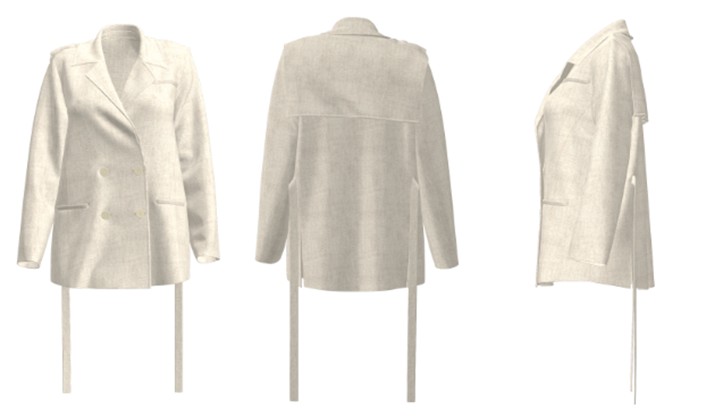
Gordon blazer
The cotton used in the production of Berabose’s designs is sourced from a cooperative in Tanzania. After sourcing, Berabose collaborates with local facilities in Rwanda for spinning and weaving. By working with local sustainable partners, they save gallons of water and reduce energy use. Additionally, they collaborate with Handspun Hope for the dyeing of the clothes, using plant-based dyes and agricultural waste to reduce the amount of water, energy, and chemicals used in the dyeing process. For packaging and distribution, Berabose has put in measures to reduce waste and carbon footprint. For instance, they offer a 10% discount for customers who return and reuse their delivery bags. In place of paper, the brand uses banana barks as clothing tags. Their distribution model is also based online, reducing the need for physical stores which contribute to greenhouse emissions.
Women’s empowerment is also at the heart of Berabose Designs. In fact, the brand’s ‘27’ collection honored the several women who influenced Elisabeth’s entrepreneurial journey, as each of the pieces was named after those honorable ladies.
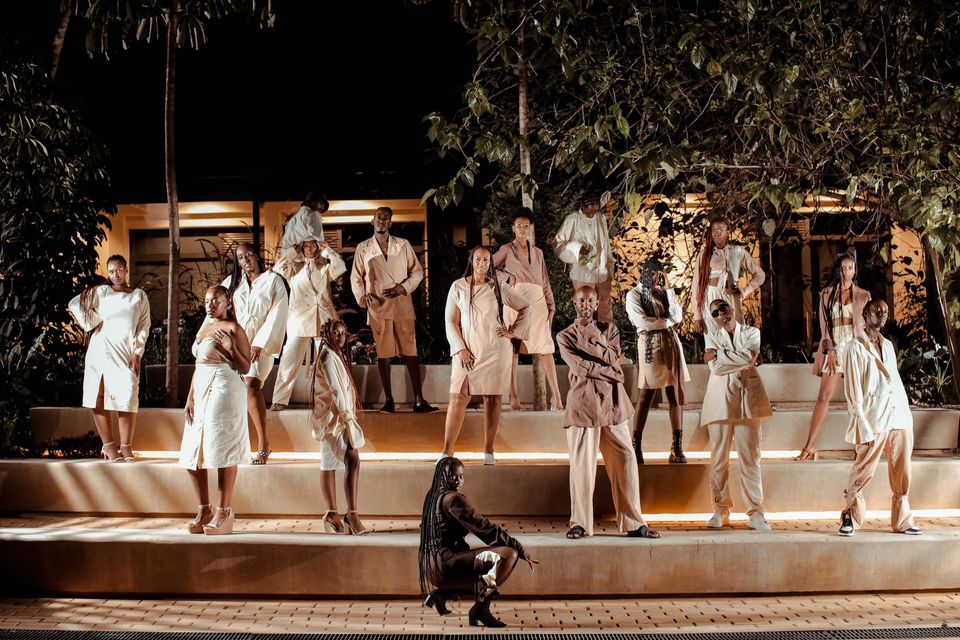
27’ collection
“My empowerment journey was made possible thanks to the amazing women surrounding me. Friends, sisters, mentors and family members. Naming each piece of the ‘27’ collection after the women who’ve had a substantial influence in my life was my way to show them my appreciation for helping me becoming who I am today” - Elisabeth
As part of its inclusive employment strategy, the brand recruits and trains informal female workers. For the sewing process in particular, Berabose employs only women, with the aim of providing them with a steady income and financial security. This not only helps to promote gender equality and women’s economic empowerment within the community, but it also creates a sustainable system that benefits women and their dependents.
Raising awareness on the importance of sustainability in fashion
The brand also has a cocktail of sustainability initiatives aimed at increasing customers’ knowledge on sustainability. Through its social media platforms, Berabose educates consumers and encourages eco-friendly behaviors. They also provide information on how to take measurements to avoid commute time from their consumers, and textile waste due to misfits. They also created a slow fashion series to inform consumers about fast fashion's environmental and social consequences and tips to avoid them. Some of their posts are dedicated to mixing and matching items to help consumers realize different looks.
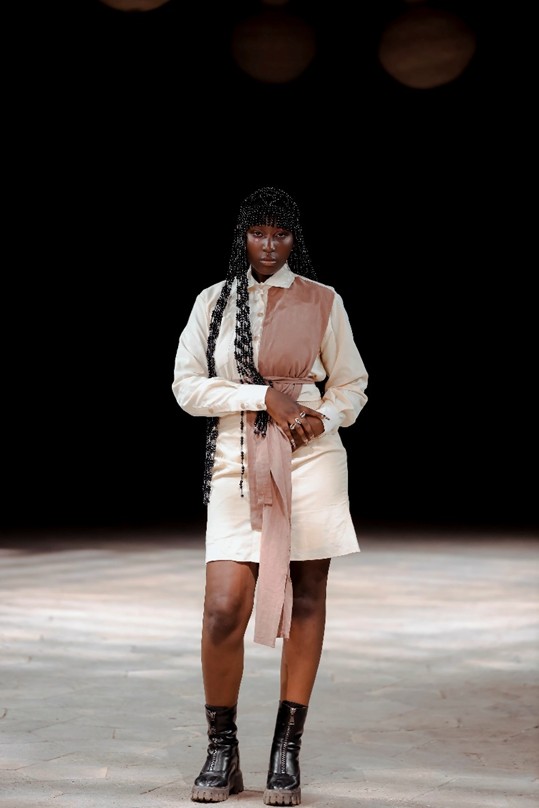 Mukamusoni shirt
Mukamusoni shirt
About being a finalist of the Fashionomics Africa Contest
Berabose Designs was elated to have been part of the finalists for the Fashionomics Africa Contest. Making it to the finals of the competition has helped to validate their efforts and reflected the value of the work that the brand is doing.
"Being a finalist in the Fashionomics Africa contest is not only an honor for Berabose Designs, but also a testament to our commitment to promoting African fashion to a global audience. We are grateful for this opportunity to showcase our team’s work, share our journey and vision for sustainable fashion with the world." - Elisabeth
The Fashionomics Africa Contest awards the finalists with a package of prizes that includes a branding kit, promotion actions to gain visibility as well as mentorship and networking opportunities to facilitate business growth.
Overall, Berabose's sustainable business model focuses on reducing the environmental impact of their products through sustainable sourcing, upcycling, biodegradability, and encouraging eco-friendly behaviors. They also focus on innovation, particularly technology utilization, which positions them as a pioneer for sustainable design solutions.
To view more of Berabose Designs’ incredible work, visit their website.
Source: FASHIONOMICS
In 2022, the European Commission unveiled a new strategy for sustainable textiles, aimed at coming up with more systemic solutions for improving the sustainability of the textile industry. The strategy also aligns with the European Green Deal, whose focus is to make growth sustainable, climate neutral, efficient regarding energy and resource, respectful of nature, and built around a clean and circular economy.
Given that the European Union (EU) is one of Africa’s top two export markets for textiles, its recent strategy on sustainable textiles has several implications for the African fashion industry. In this week’s article, we will explore the key takeaways from the EU strategy for textiles and the opportunities it presents for African fashion brands.
Background of the EU textile sector
The textiles sector is an important economic driver of the EU economy, with a turnover of EUR 162 billion, and employing over 1.5 million people in 160,000 companies. However, it also contributes significantly to environmental pollution with the fourth-highest impact on the environment after food, housing, and mobility. The EU has responded to the climate challenges posed by the sector, by adopting a new strategy for sustainable textiles whose vision is to ensure that;
“By 2030 textile products placed on the EU market are long-lived and recyclable, to a great extent made of recycled fibers, free of hazardous substances, and produced in respect of social rights and the environment.”
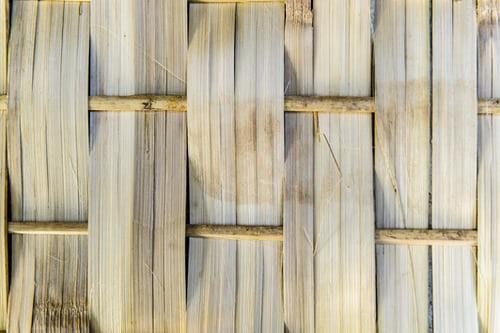
African Creativity: (PHOTO INTERNET )
Key Actions under the Strategy
The vision will be accompanied by the following practical actions, intended to support the sustainable textiles drive.
Introducing mandatory eco-design requirements
The Commission will develop binding product-specific requirements to increase textiles’ performance in terms of durability, reusability, reparability, fiber-to-fiber recyclability, and mandatory recycled fiber content. Enactment of these requirements is aimed at minimizing and tracking the presence of substances of concern and reducing the adverse impacts on climate and the environment.
Banning the destruction of unsold or returned textiles
Large companies will be required to publicly disclose the number of products they discard and destroy, including textiles, and their further treatment in terms of preparing for reuse, recycling, and incineration or landfilling.
Tackling microplastic pollution
In addition to product design requirements, binding design requirements will be introduced under the Eco-design for Sustainable Products Regulation. These will target various stages of manufacturing, through a set of reduction and prevention measures, as well as the promotion of innovative sustainable materials.
Introducing information requirements and a Digital Product Passport
The Digital Product Passport for textiles will be based on mandatory information requirements on circularity and other key environmental aspects.
Green claims for truly sustainable textiles
General environmental claims, such as “green”, “eco-friendly”, and “good for the environment”, will be allowed only if underpinned by recognized excellence in environmental performance, or voluntary sustainability labels based on a third-party verification or established by public authorities.
Extended producer responsibility and boosting reuse and recycling of textile waste
It will propose harmonized EU extended producer responsibility rules for textiles with eco-modulation of fees, to create an economy for collection, sorting, reuse, preparation for reuse, and recycling. Producers and brands will also be incentivized to ensure that their products are designed in respect of circularity principles.
Opportunities for African Fashion brands
Develop recycling industries that convert fashion and textile waste into garments for commercial export markets
The new EU regulations on increasing textile performance mean the quality of textiles exported to Africa will be higher and better suited to recycling and repurposing. African fashion brands, therefore, have a chance to increase their revenue, by adding more value to second-hand clothing and exporting it.
Standardization of sustainable products
With a mandatory requirement for validating “green” claims if a brand sells its products in Europe, the African fashion industry can seize this opportunity to come up with universally recognized sustainability standards in fashion production. Not only will this help in guarding against greenwashing claims, but it will increase the brand value of African fashion brands that are genuinely sustainable, by distinguishing them from those that are built on unsubstantiated, sustainability claims.
Lobbying for governments to invest in infrastructure for greening conventional textile industries
Because Europe is a major market for Africa’s fashion industry, its proposed regulations for sustainable textiles are an opportunity for African fashion brands to come together and lobby the government to channel investment towards infrastructure for circular textile clusters. This will speed the greening of conventional textile industries by introducing economies of scale for small to medium enterprises (SMEs) in the African fashion industries. Additionally, it will facilitate improved access to export markets.
Investing in sustainable textiles
To better exploit market opportunities in the EU, African fashion brands have an opportunity to invest in sustainable textiles such as regenerative fibers which ultimately help them design waste out of their production processes. Efforts in this area are already underway, with companies such as Pine Kazi manufacturing shoes from pineapple waste.
Increase employment through the promotion of local artisans
The EU drive for sustainable textiles is an opportunity for African fashion brands to promote local artisans in Africa, who are already engaged in sustainable production methods such as hand-weaving, natural dyeing, and embroidery. It presents a chance for them to sell their products in markets where the sustainability component of their products is recognized and rewarded.
To learn more about the EU Strategy for Textiles, read their report here.
Source: FASHIONOMICS
Models catwalking at a past fashion show. The webinar will discuss how to push the industry in Africa forward.
Rwanda Cultural Fashion Show (RCFS) will on December 18, hold a virtual conference during which players in the fashion industry will discuss the current state of the African fashion industry.
Dubbed “The Future of Fashion Industry in Africa”, the webinar will bring together different stakeholders of the fashion industry to share experiences and discuss how private and public institutions can support Africa’s growing fashion industry.
The webinar will include discussions which will be in the form of a series of a thought-provoking panel. Key speakers of the event will include renowned fashion designers, fashion promoters, experts in textiles and fabric dyeing, fashion school teachers and some government representatives.
Celestin Ntawirema, the brains behind RCFS and organiser of the webinar told The New Times that participants in this webinar will share experiences on how to establish a successful fashion concept business, discuss challenges facing the industry and propose some solutions.
“Though Covid-19 halted most activities in the industry, we thought of creating a platform that will bring players in the fashion industry to share experiences and best practices so we can learn from each other how best we can push our fashion industry to another level. We also want to see how designers can go global through African networks,” Ntawirema said.
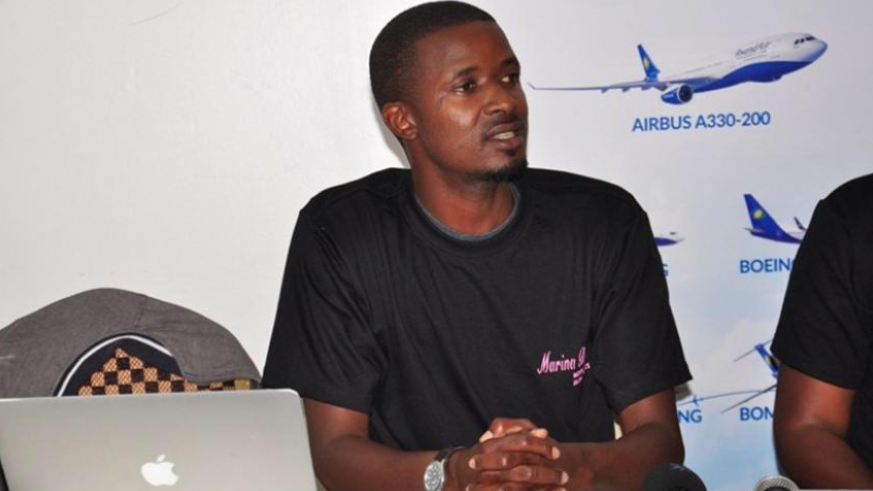 Celestin Ntawirema, the CEO of Rwanda Cultural Fashion Show. / Courtesy.
Celestin Ntawirema, the CEO of Rwanda Cultural Fashion Show. / Courtesy.
The African fashion sector is already impressing in the global market, something that industry players hail as a motivation despite the challenges they have faced in the journey.
Ntawirema, who has been promoting fashion for over the past eight years said that, from his experience, many brands from all over the continent had established themselves among the best globally and are now selling big on the international fashion markets compared to Western fashion despite having few fashion schools that can drive the industry to greater heights.
He, however, lamented that investors are still reluctant to put their money in fashion-related projects because protection of fashion copyrights and fashion innovations is still low due to the gap in fashion literacy.
The webinar, he said, will be an opportunity for fashion players to show both the public and private sectors the potential that fashion has at its disposal so as to attract their investment and, on the other hand, call for support from the governments to create a conducive environment for fashion to flourish and become a sector which can contribute to the national economic development.
 A model shows up before the audience during a past event. / File.
A model shows up before the audience during a past event. / File.
Some of the speakers expected for the webinar include Ruth Jackob, senior lecturer in fashion marketing Eastern London, Karen Uwera, the President of Rwanda Designers Association, John Bunyeshuri, the CEO and Founder of Kigali Fashion Week and Kenyan fashion guru Vinn Clizz, the Managing Director of Vinn Clizz among others.
Challenges
Though Rwanda’s fashion industry is being contextualized with the ‘Made in Rwanda’ policy but Ntawirema said that it’s a shame that One of the biggest challenges we have is that we have no fashion school that can prepare and raise future designers, models, or fashion promoters by profession.
“This is all down to the fact that Rwanda has no forum bringing together designers, models, promoters and other stakeholders to discuss to the future of this industry. We also need an umbrella or a fashion watchdog for all players in the fashion industry to ensure that the protection of our works is guaranteed,”
Rwanda may have local designers who are becoming successful but under hard conditions which the webinar is also looking forward to tackling.
The webinar outcomes are expected to respond to questions raised around African fashion industry from “who can design?”, “who can sell locally-made clothes”, and “who promotes fashion?” or even “who can basically support fashion sector?”
“We hope the webinar will find share responses to these questions together with the speakers. We also value new ideas from the public from which the future styling and fashion business in Africa can rely on,” he added.
This email address is being protected from spambots. You need JavaScript enabled to view it.
Celestin Best Ntawirema is the CEO of Rwanda Culture Fashion Show and founder of film house IRIS-Pro 1000 Hills Ltd. His goal is to support artistry and culture through dance, music, fashion and film. He spoke to Society Magazine’s Stephen Kalimba about his sense of style.
How would you describe your style?
I am fun and fashionable; not too many colours. I want my outfits to match. With a job like mine, you have to look good. I like suits too; my friends ask me questions when they do not find me wearing one.
Do you have a designer?
I work with many designers, so I try out some of the stuff they do. I also have tailors who make suits and they are very good, like Joseline Umutoni near Sky Hotel Remera.
What’s your take on white shoes? Some people wear them with suits?
They are not for everybody or every day, if you’re going to the stage or on screen, maybe.But elsewhere? Not really. Even our roads are too dusty for them.
Second hand vs. new clothes?
I don’t go for second hand clothes. I used to but now, for the sake of my credibility I don’t.
What are your kind of accessories?
I like watches, especially sports and metal watches like Caico and Shades. Watches are good for time saving, you might have a phone but when you’re seated on a moto or in a crowded place, all you need is to look at your watch.
Who influenced your venture into fashion?
My dad. He liked to wear Kitenge and African jewellery like that of the Maasai.
What should people avoid in fashion?
There are clothes that come from China that look nice when you first see them but fade in no time.
Any fashion advice?
When you’re smart you can relax and have a peace of mind, especially around people. Keep your clothes in good condition;do not over wash or iron them. Also, do not leave them with someone else to take care of, they might mess them up instead.
This email address is being protected from spambots. You need JavaScript enabled to view it.
Munyana Peace Kenson na Mwiza Amelie proved their skill and talent in modeling during the Fashion Factor season 5’ which took place in Dubai.
These girls headed to Dubai on June 22, 2023, to represent Rwanda in an international fashion event, which brought together fashion artists from all over the world. This event took place on June 24 and 25, 2023, where these ladies showcased the clothes of different fashion designers.
Munyana and Mwiza are some of the last six winners of 'Rwanda Top Model', a competition that took place on December 28, 2022, which had more than 150 candidates selected by the Jury until six were found.
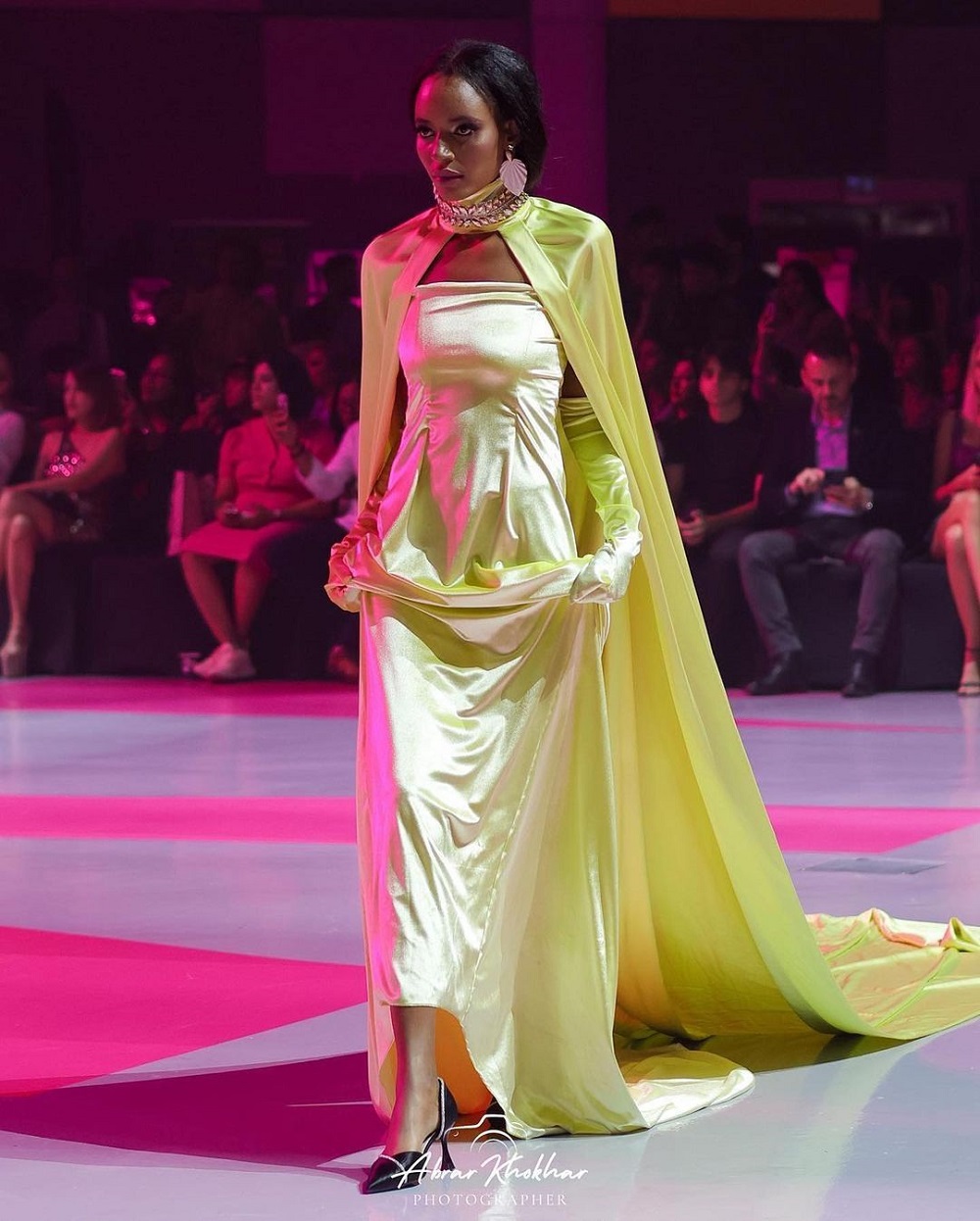 Munyana and Mwiza are some of the last six winners of 'Rwanda Top Model', a competition that took place on December 28, 2022
Munyana and Mwiza are some of the last six winners of 'Rwanda Top Model', a competition that took place on December 28, 2022
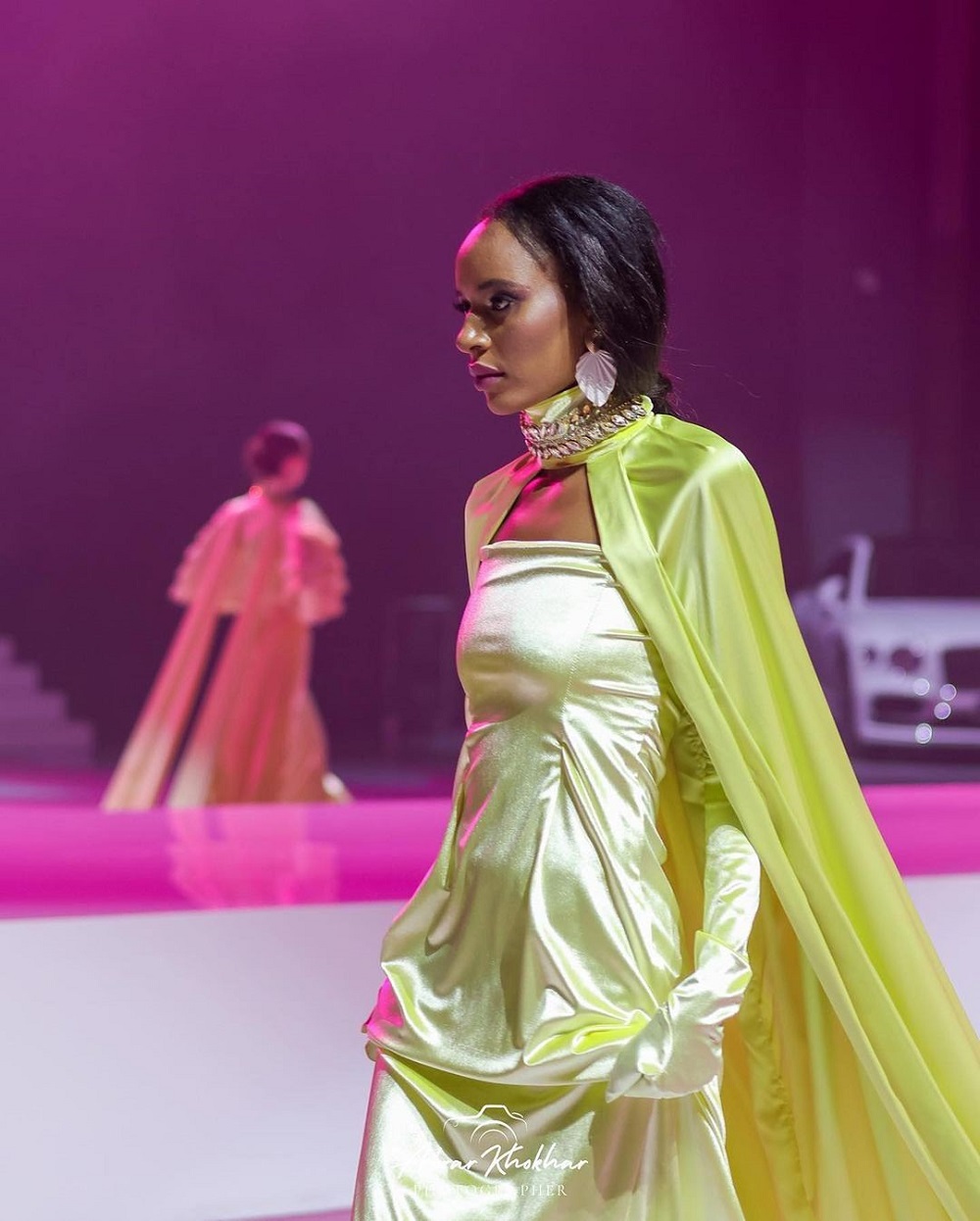 Factor season 5’ which took place in Dubai.
Factor season 5’ which took place in Dubai.
Pepkor Holdings Ltd. replaced the head of its Ackermans unit after Africa’s largest clothing retailer posted a drop in first-half earnings as it failed to get the right summer fashion mix.
The discount retailer, which started 100 years ago in rural South Africa and now has 5,929 stores in almost a dozen countries, has brought in “some new eyes from outside” to run the division as it also reconsiders package sizes of items such as T-shirts and shorts, Pieter Erasmus, chief executive officer of Cape Town-based Pepkor, said in an interview Tuesday.
Ackermans is facing intensifying competition from Shoprite Holdings Ltd., Africa’s largest grocer, which recently opened specialist clothing and baby stores — categories in which Pepkor’s flagship Pep and Ackermans outlets are active.
“There are some very good competitors out there,” Erasmus said, citing Pick n Pay Stores Ltd.’s clothing unit and Jet, which has better access to funds since it was purchased by The Foschini Group Ltd. The new Ackermans CEO was previously the chief operating officer at Pick n Pay, Erasmus said, without providing the person’s name.
Other changes at Ackermans include new appointments to its women’s clothing team, “because that’s a key market share opportunity for us,” Erasmus said. An improved performance is expected by the end of August and into the next summer, he said.
Earlier on Tuesday, Pepkor reported an 11% drop in net income to 2.98 billion rand ($151 million) in the six months through March. While revenue improved, inventory levels increased 12% as sales slowed at Pep and Ackermans, the company said in a statement.
The stock lost as much as 8.6% and was down 6.9% as of 11:50 a.m. in Johannesburg, its biggest intraday drop since Sept. 13. That brings its decline this year to 29% and makes it the worst performer on the eight-member FTSE/JSE Retailers Index.
Source: BNN Bloomberg
LATEST NEWS
Rwandan Cesta Collective handbag brand Receives Investment from Meghan Markle
04 September 2024 3969 hitsRwandan Cesta Collective handbag brand Receives Investment from Meghan Markle Cesta baskets are handwoven of locally sourced, renewable resources, by…
Moshions in Italy: A Journey of Self-Discovery
28 August 2024 4081 hitsMoshions in Italy: A Journey of Self-Discovery The INZOZI FASHION EXPERIENCE 2024, organized by Moshions, promises to be a landmark…
Who Will Win for the Miss, Mrs., and Mr. Heritage International Kenya 2024?
27 August 2024 4859 hitsWho Will Win for the Miss, Mrs., and Mr. Heritage International Kenya 2024? Two weeks ago was a busy period…
La Femme Fashion Show 2024: 4th Edition Takes Center Stage in Kinshasa
25 August 2024 4074 hitsLa Femme Fashion Show 2024: 4th Edition Takes Center Stage in Kinshasa The vibrant city of Kinshasa is set to…
Where Fashion Meets Opportunity: The ASFW 2024 Updates in Addis Ababa
24 August 2024 4106 hitsWhere Fashion Meets Opportunity: The ASFW 2024 Updates in Addis Ababa As the Africa Sourcing and Fashion Week (ASFW) 2024…
All Set for the Novelty Fashion Week 2024, 6th September
24 August 2024 4106 hitsAll Set for the Novelty Fashion Week 2024, 6th September The vibrant city of Kigali is buzzing with anticipation as…
FASHION SHOPS
